Pause
Even in the midst of a very vibrant and lively city sometimes things are too absurd to a point that turning a blind eye might be best. Like taking a stroll by the river side IN a luggage, pushing yourself backward blindly disturbs the passer-by but not enough for him to stop, where taking a nap suspended between two trees to rest your ears form city’s loudness becomes a casual act.
Recomposing crates into a child play is very welcome in a very dense area like Karm el Zeitoun and extending a mini corniche on a private pier built with public tax money to alert citizens about their rights to the city becomes a necessity.
From a door on wheels crossing joggers on the corniche to mark a threshold as a memorial in a specific location to then sit on a plastic chair with a park-meter ticket attached to your shoulder claiming your right to a parking lot. While on the same street 200 m further you can use the same parking ticket to have a lie down on a 6 meter cart covered with fresh grass, in the sun for 30mn, in the midst of the city that is drastically lacking public space!
Recomposing crates into a child play is very welcome in a very dense area like Karm el Zeitoun and extending a mini corniche on a private pier built with public tax money to alert citizens about their rights to the city becomes a necessity.
From a door on wheels crossing joggers on the corniche to mark a threshold as a memorial in a specific location to then sit on a plastic chair with a park-meter ticket attached to your shoulder claiming your right to a parking lot. While on the same street 200 m further you can use the same parking ticket to have a lie down on a 6 meter cart covered with fresh grass, in the sun for 30mn, in the midst of the city that is drastically lacking public space!
Keywords: Punctual interventions, everyday objects, public, activism, pedagogical methodology, temporality, playfulness.
Concept & Production: Rana Haddad, Taha Barazi, Tara Kanj, Soraya Hammoud, Mohammad Nahleh.
Pause / Description
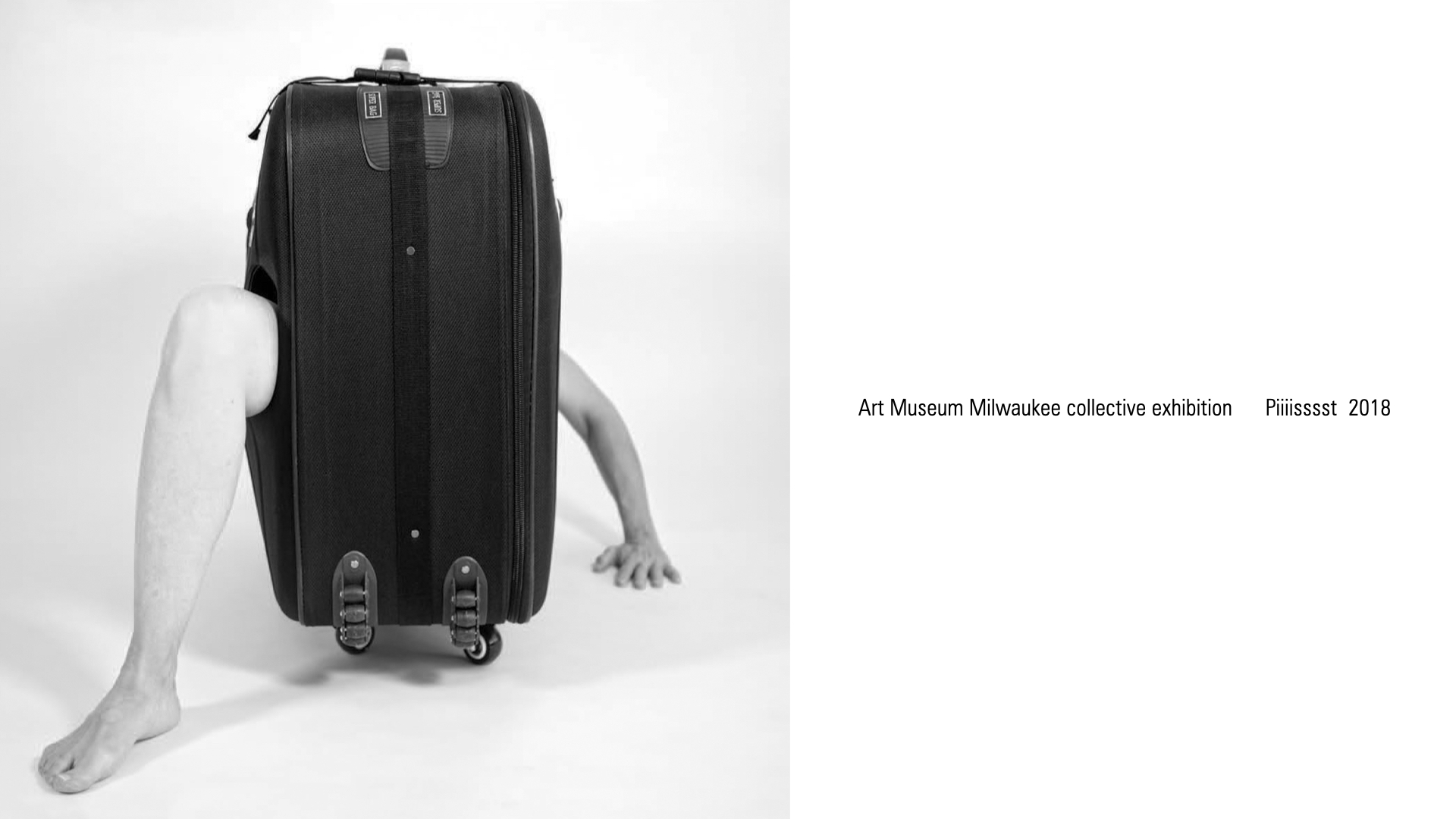

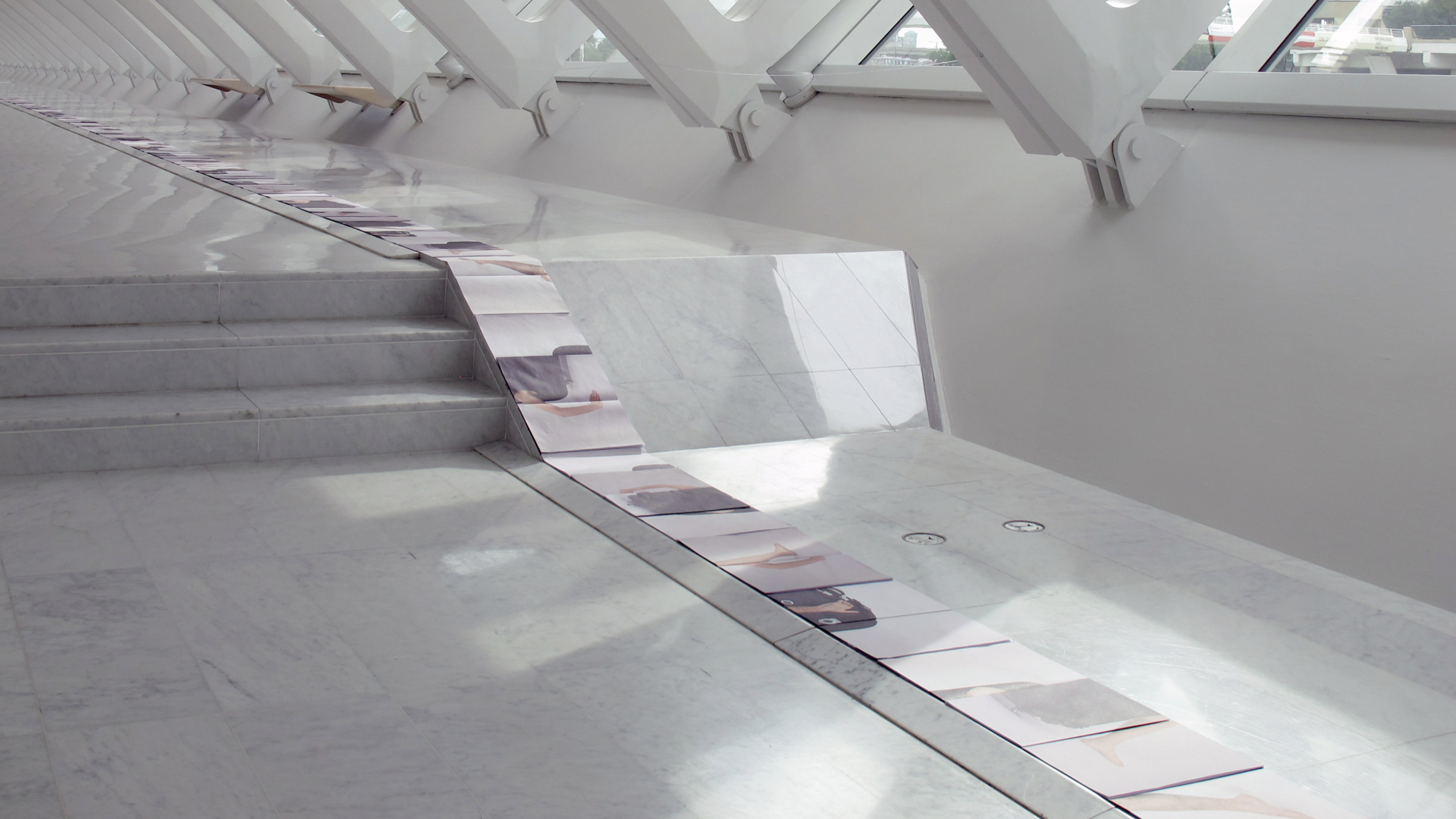

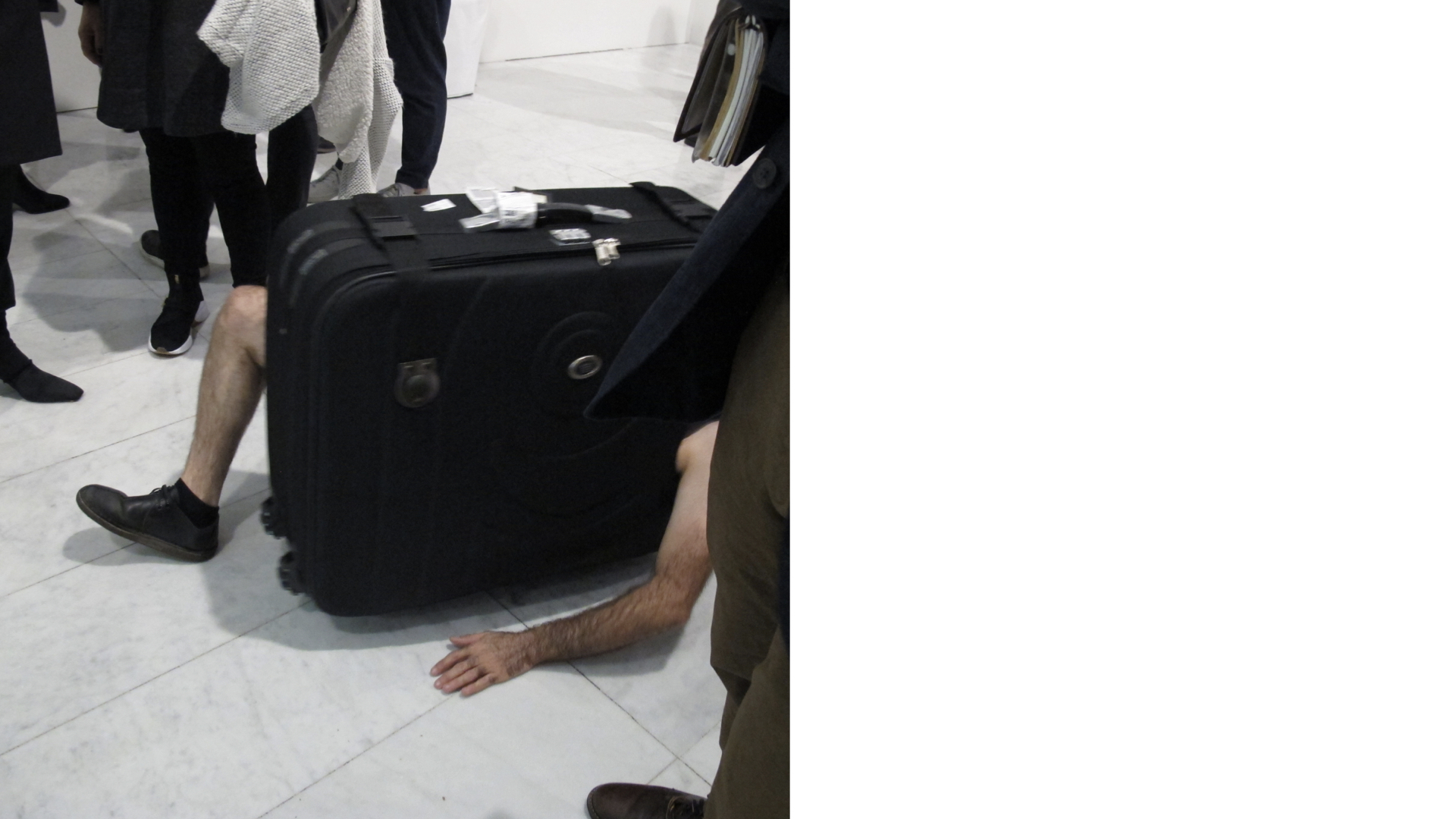
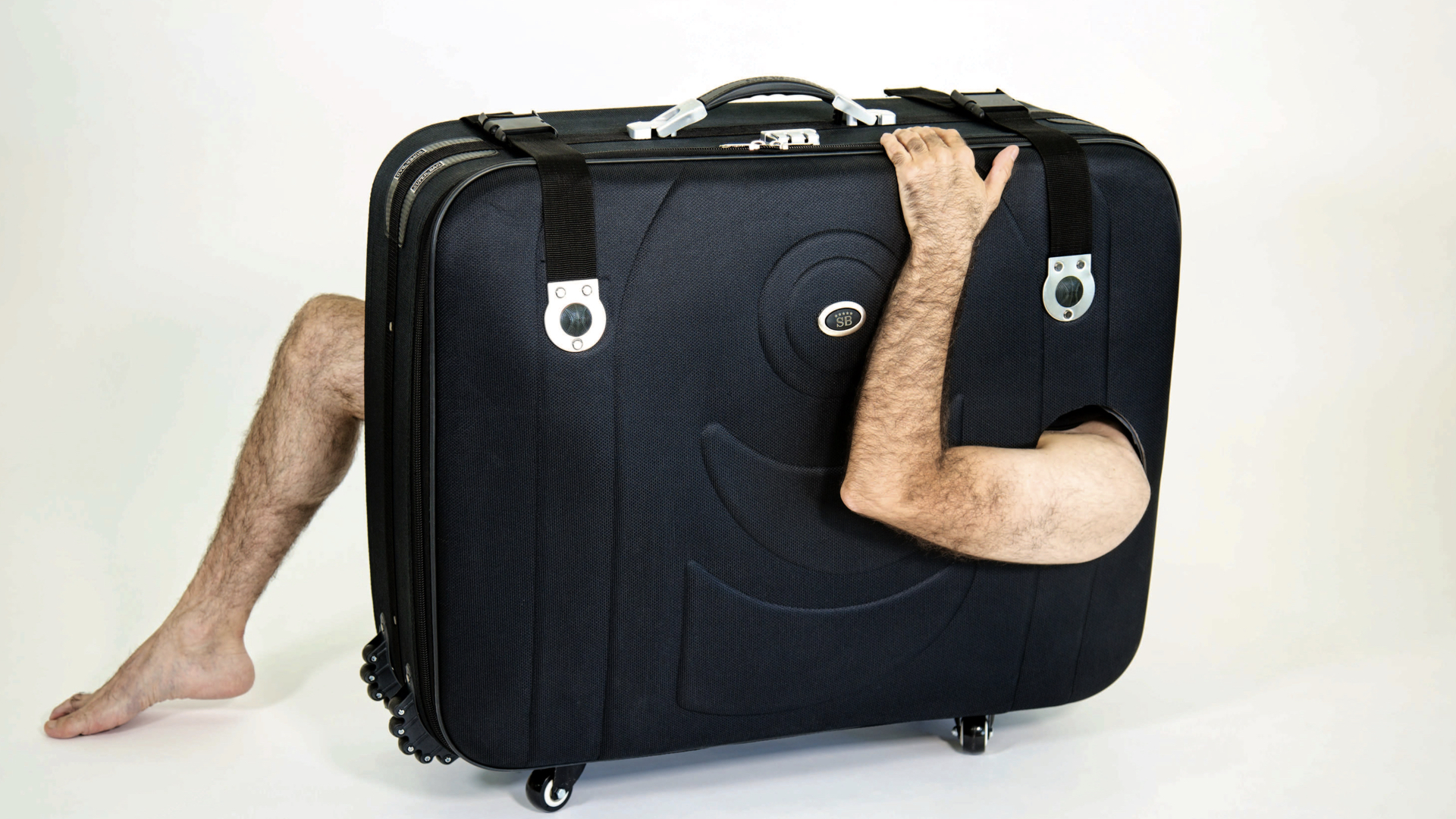
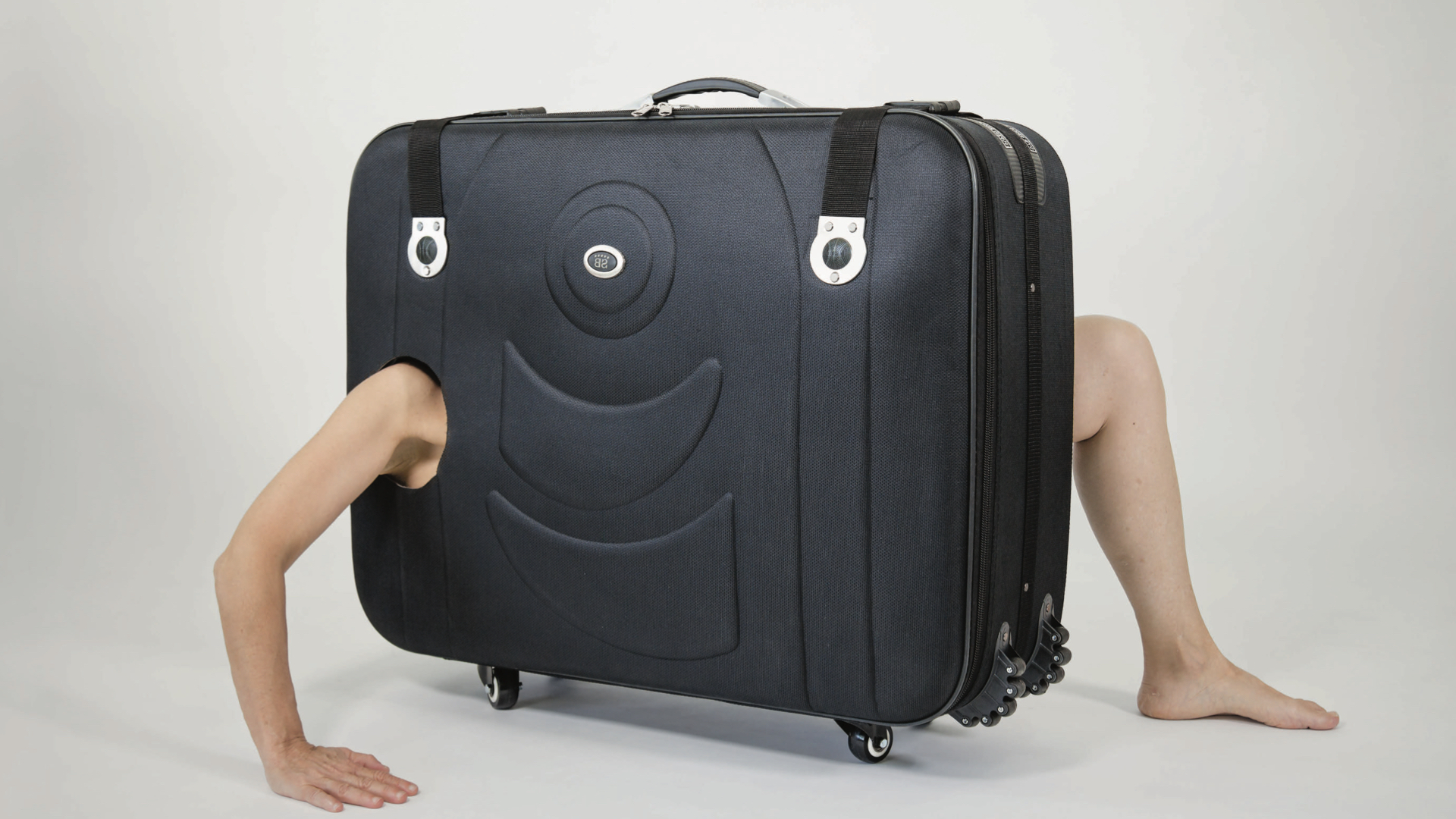


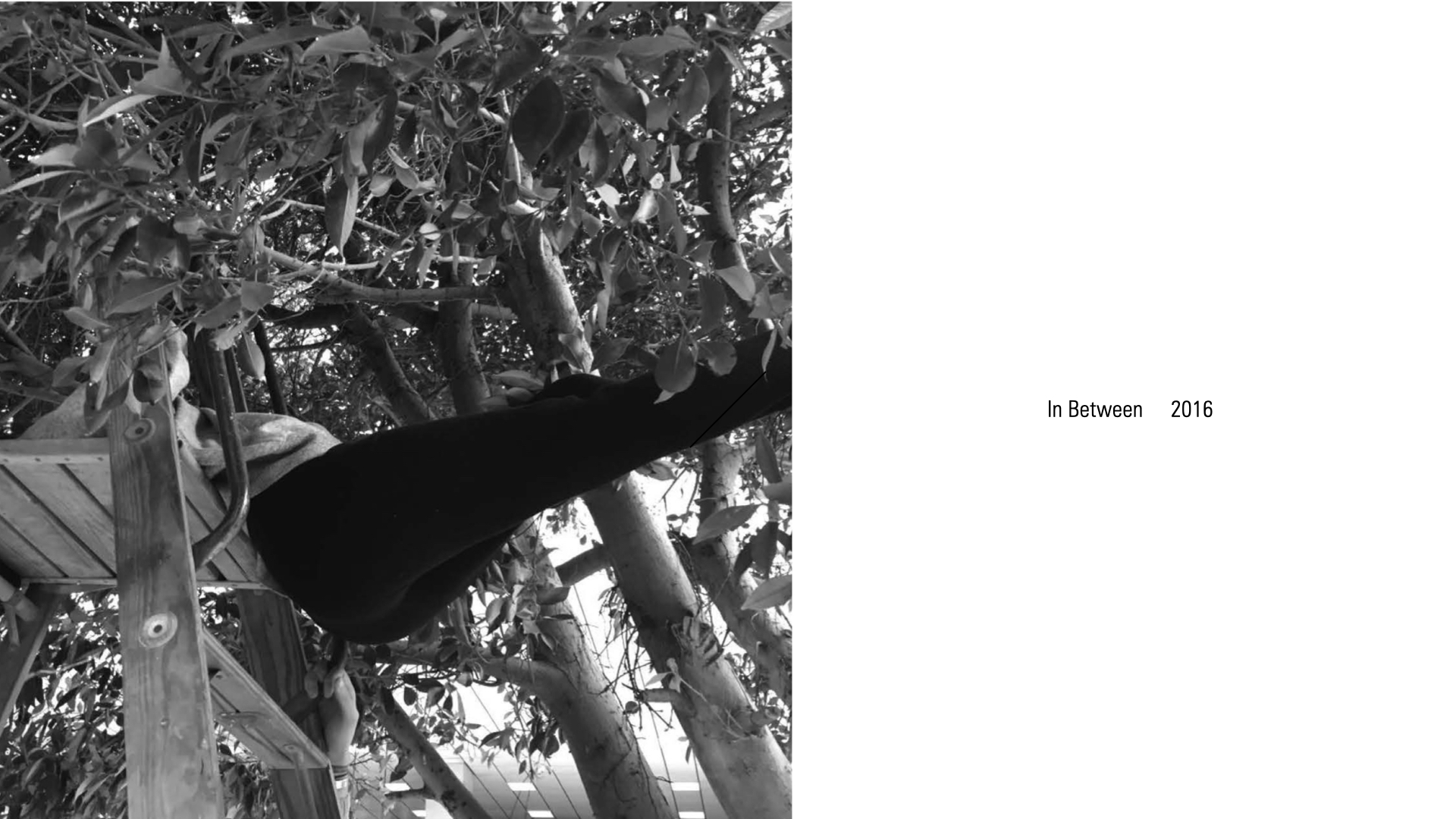
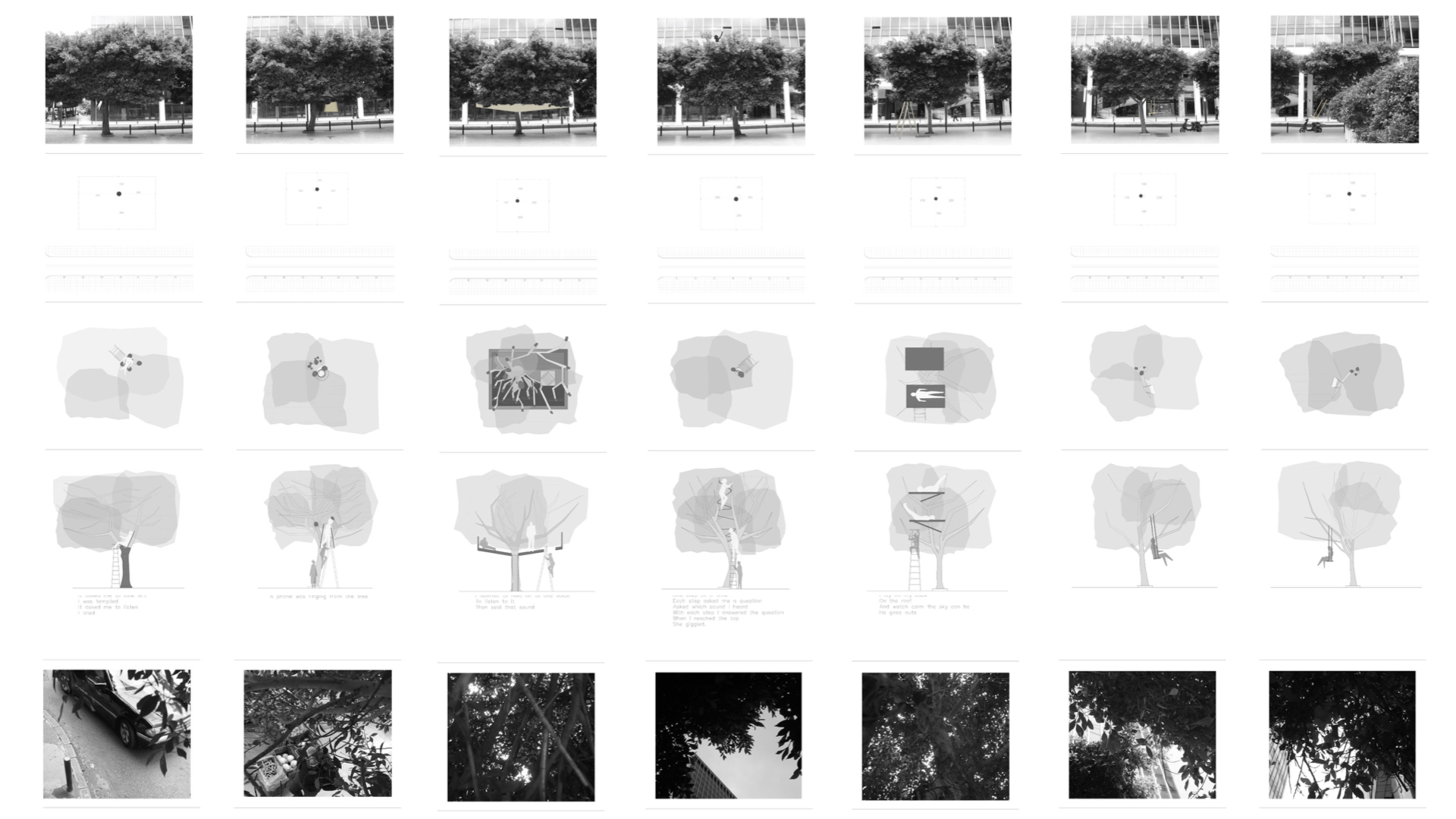

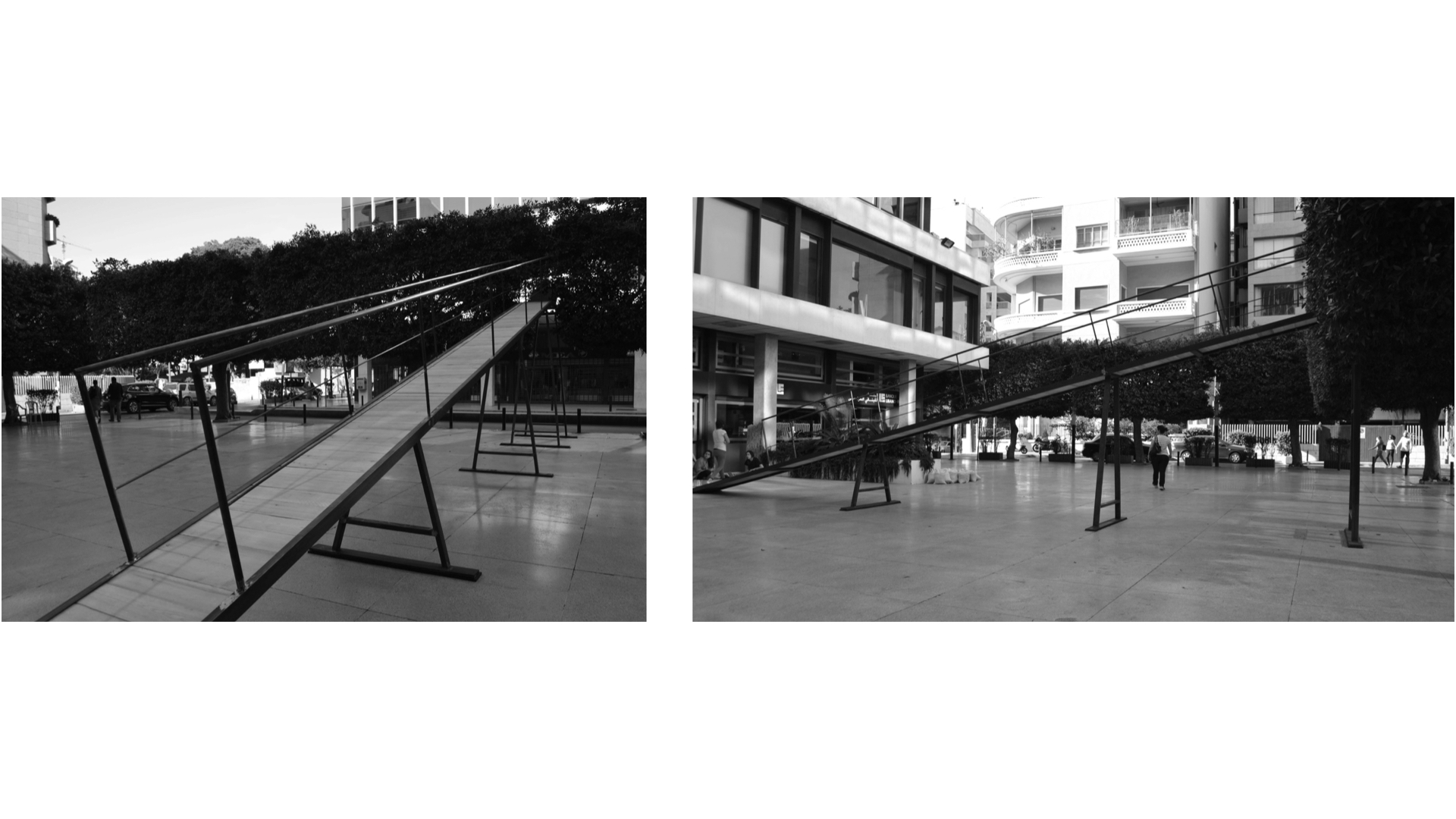
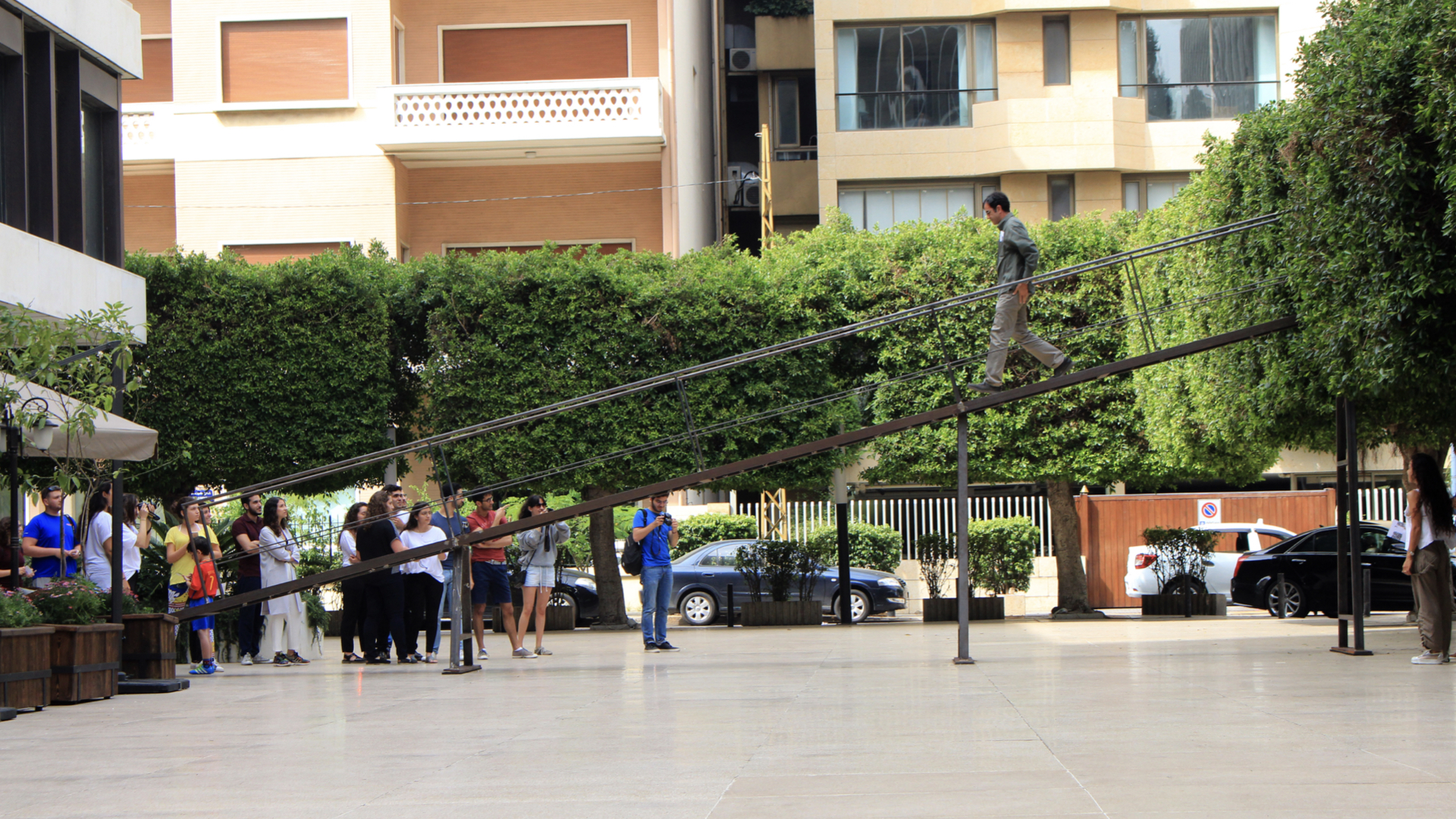
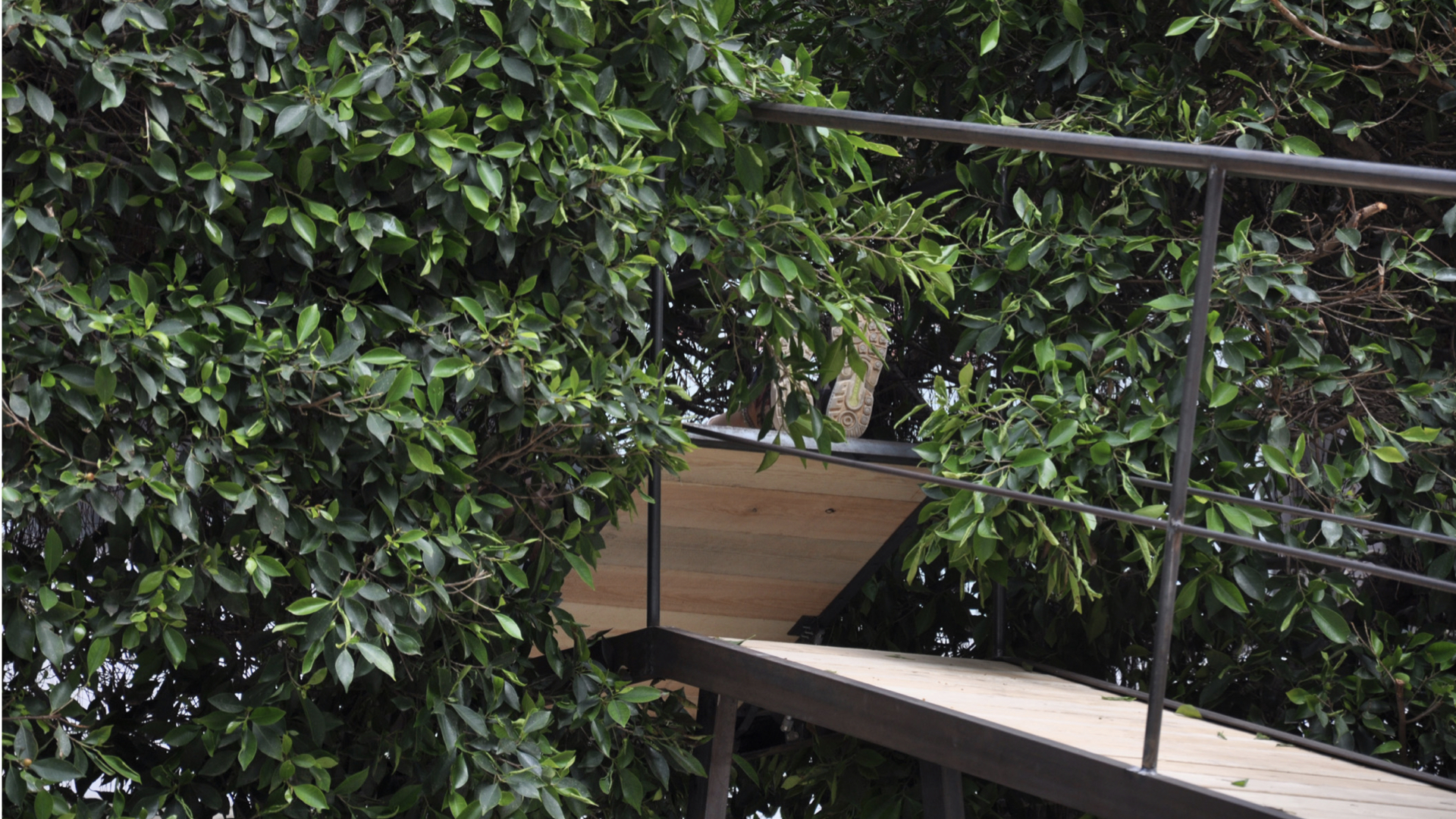


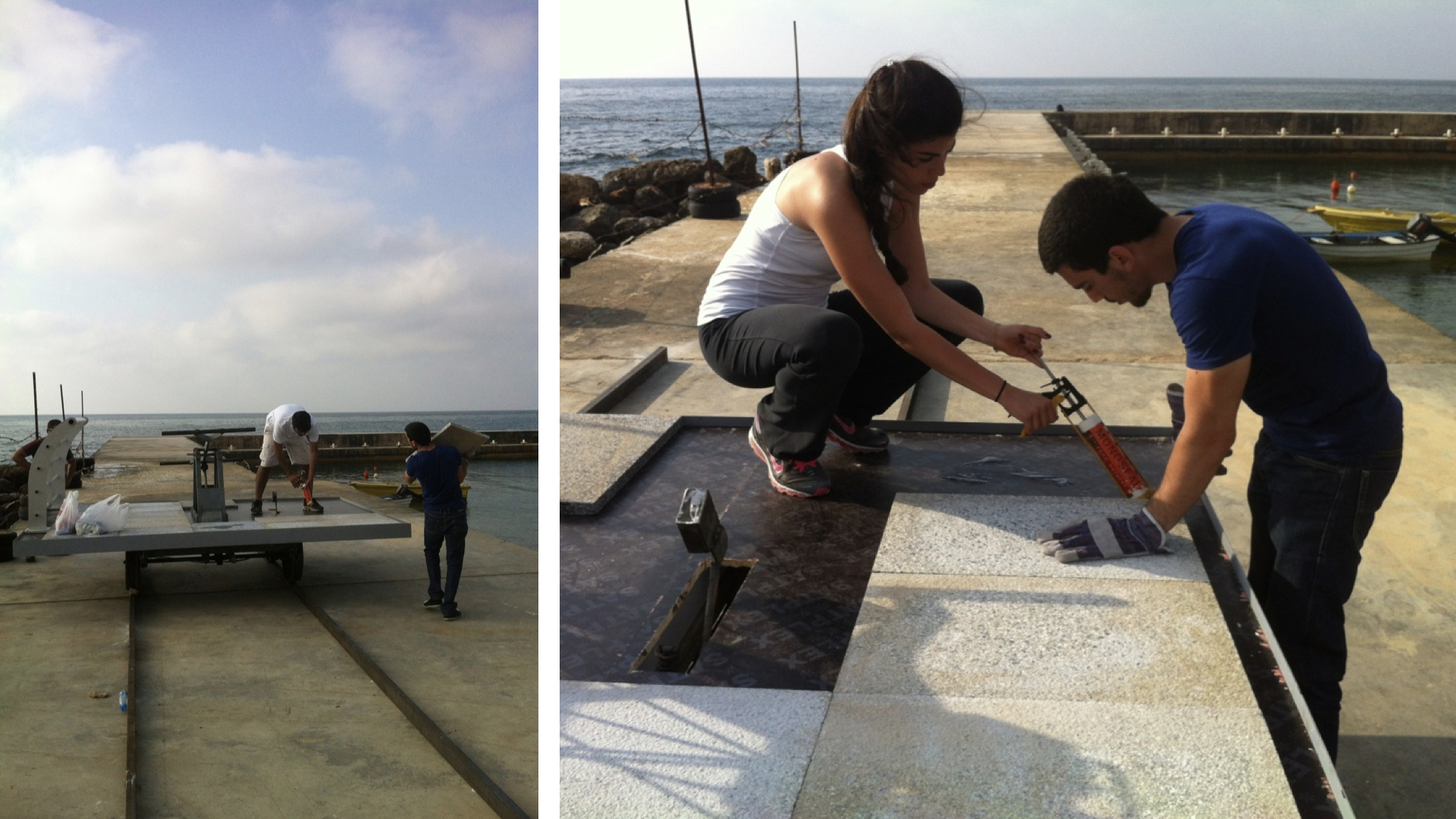
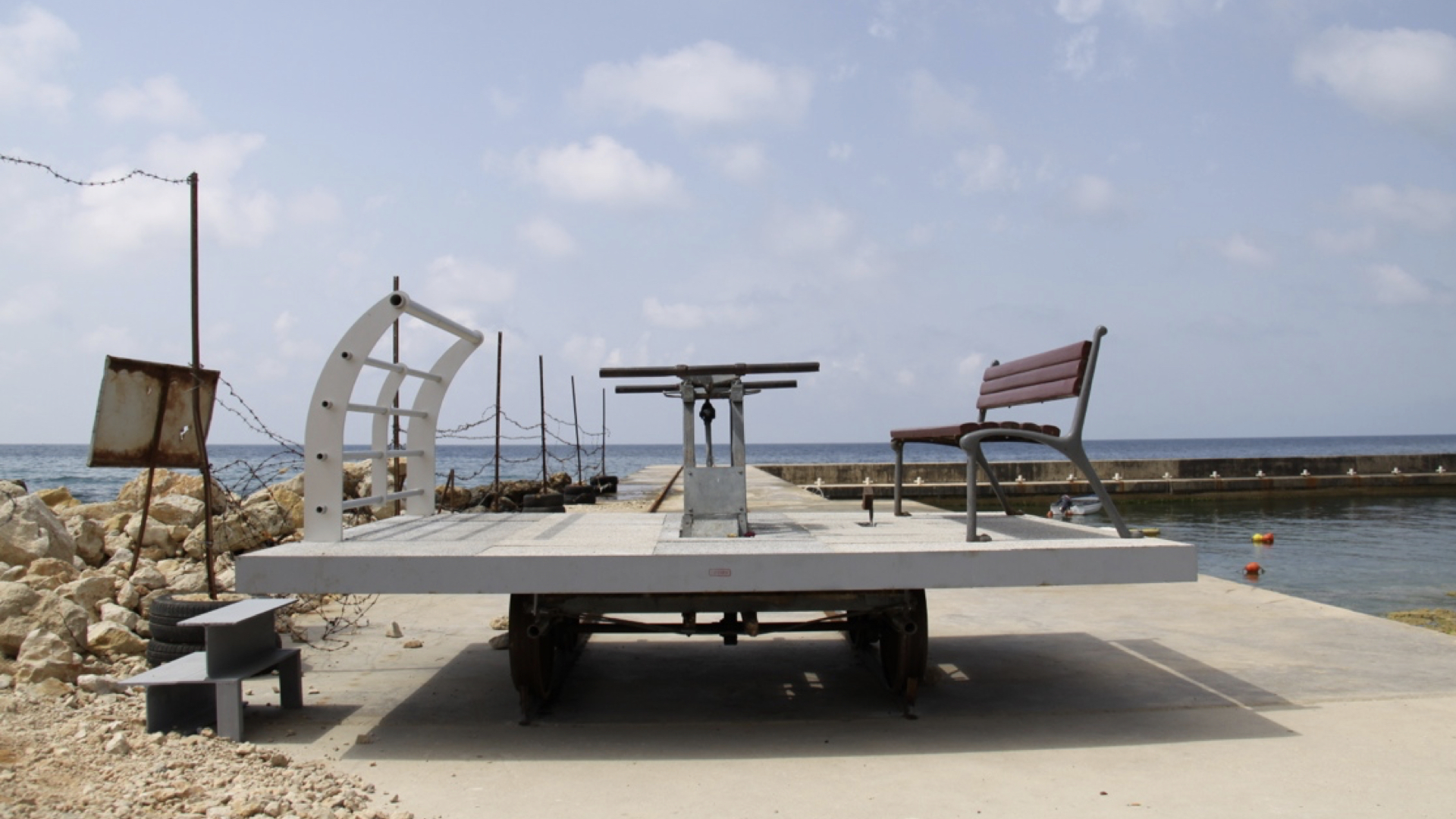
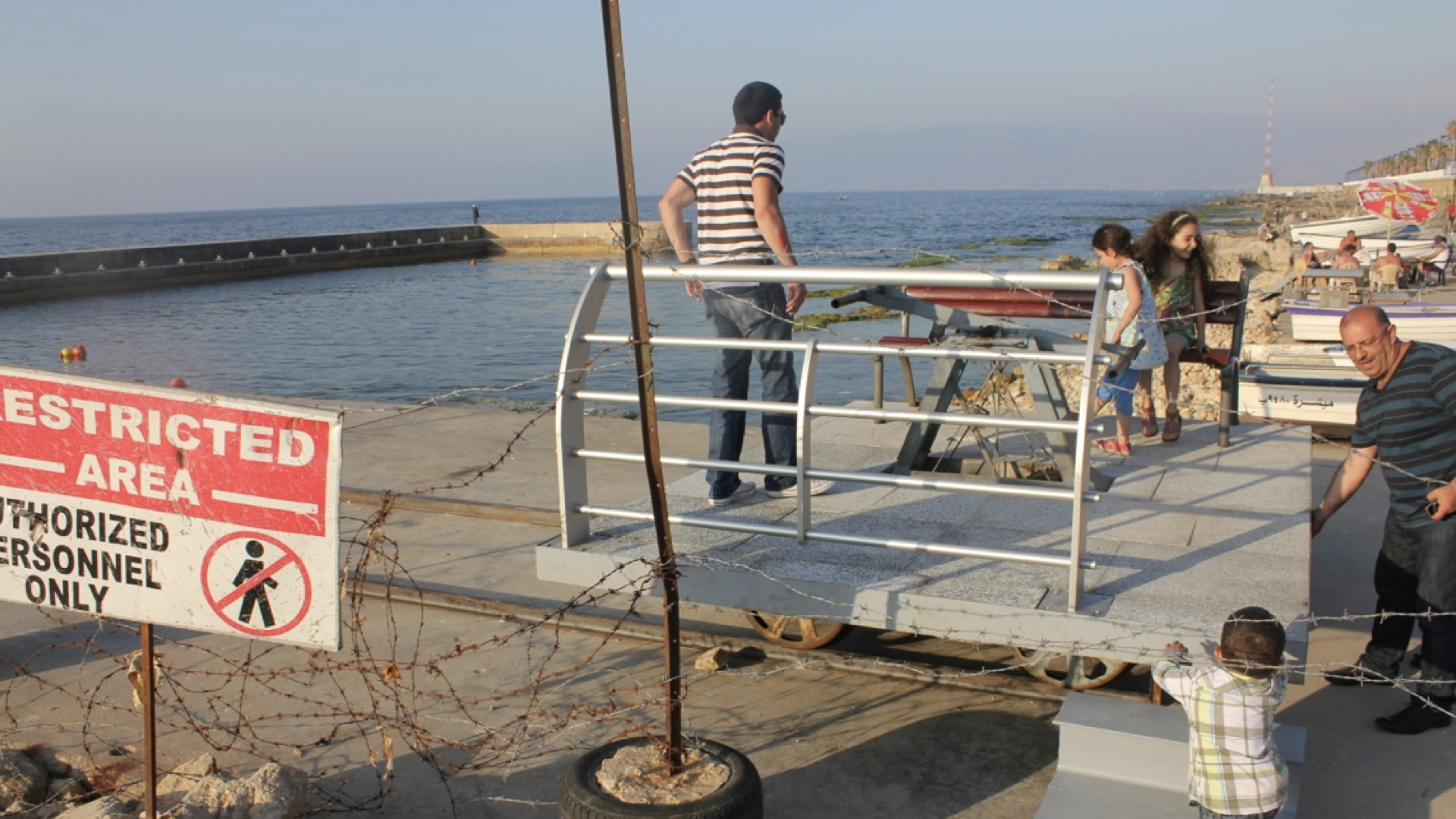
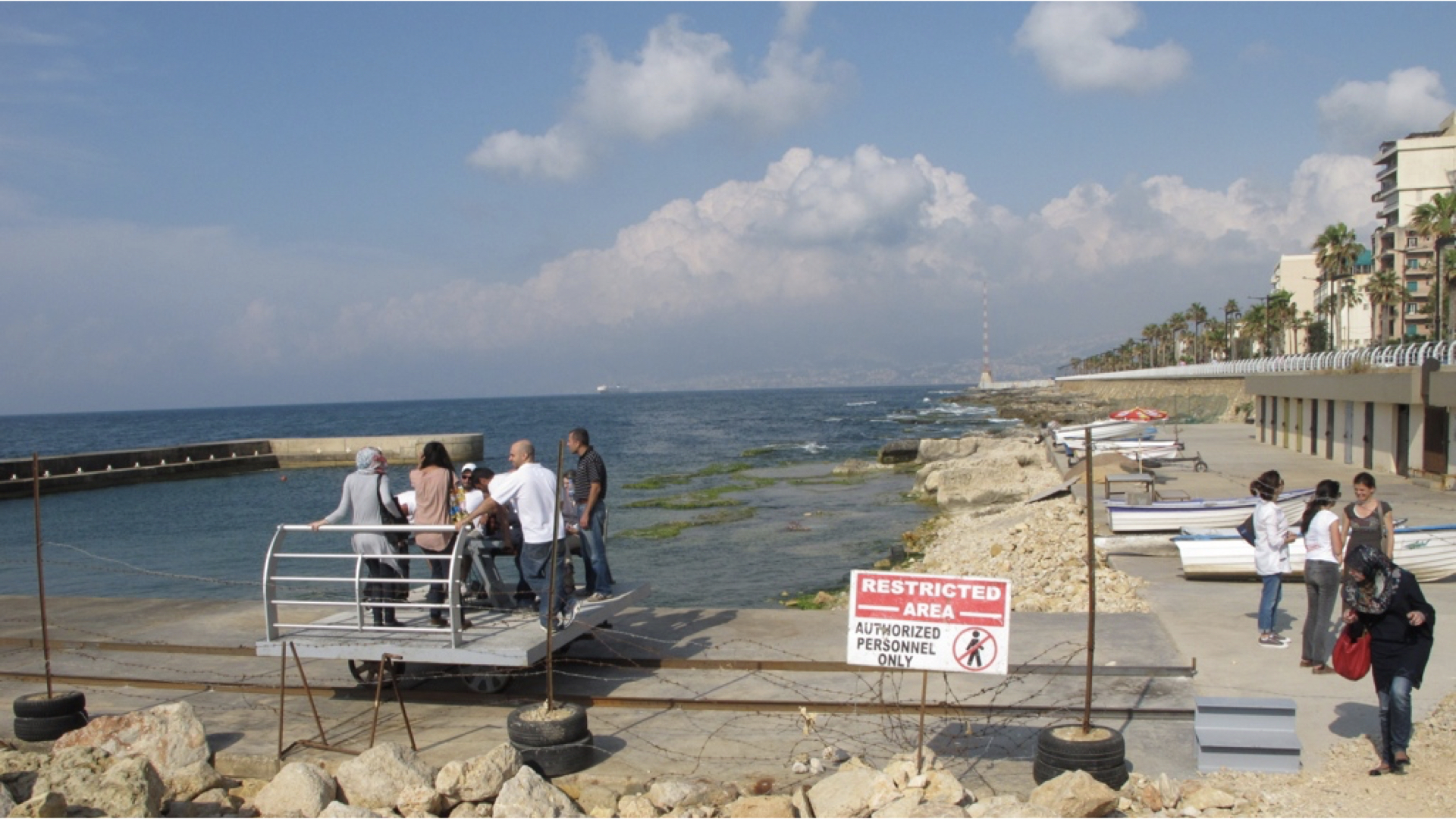
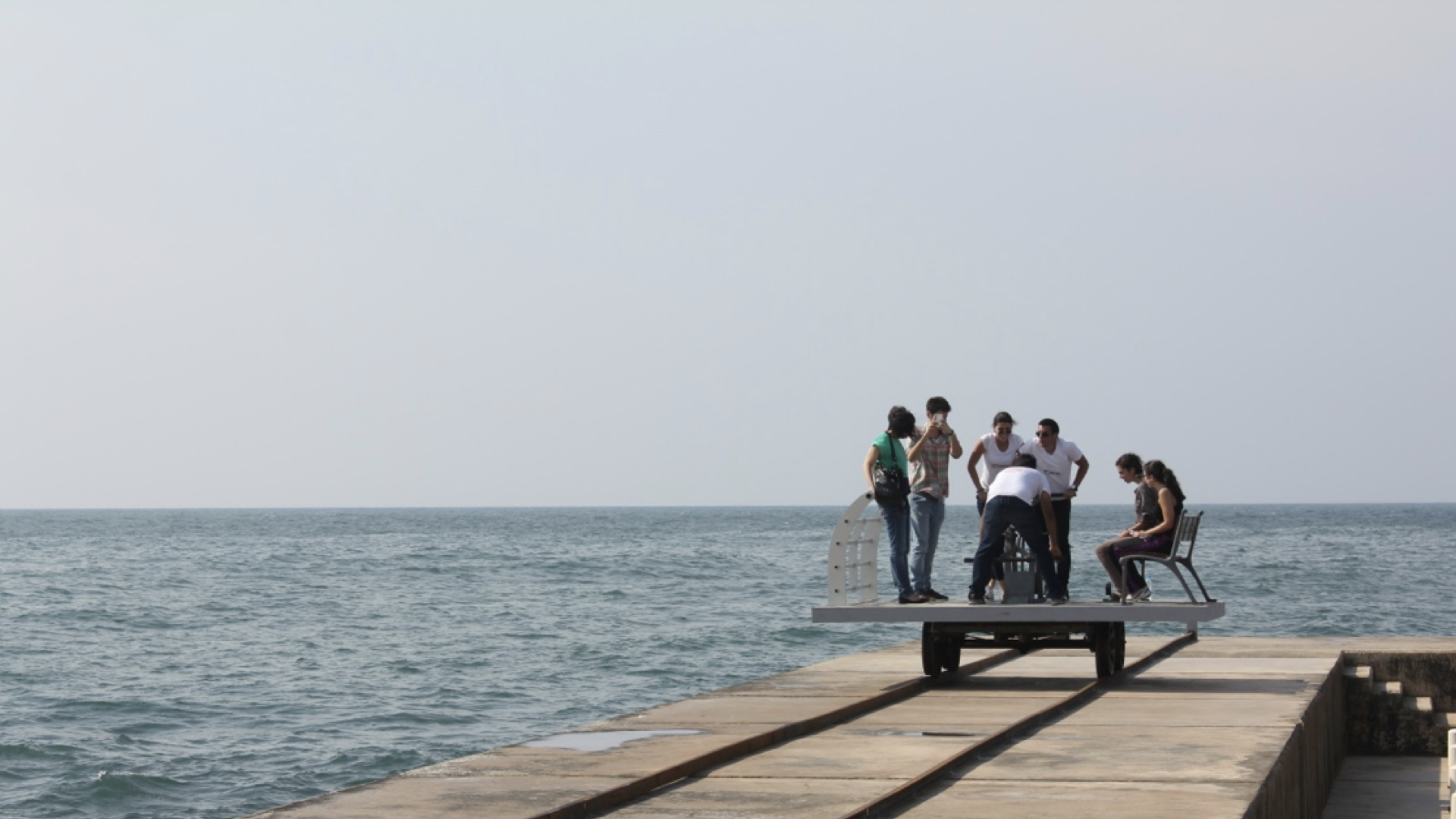
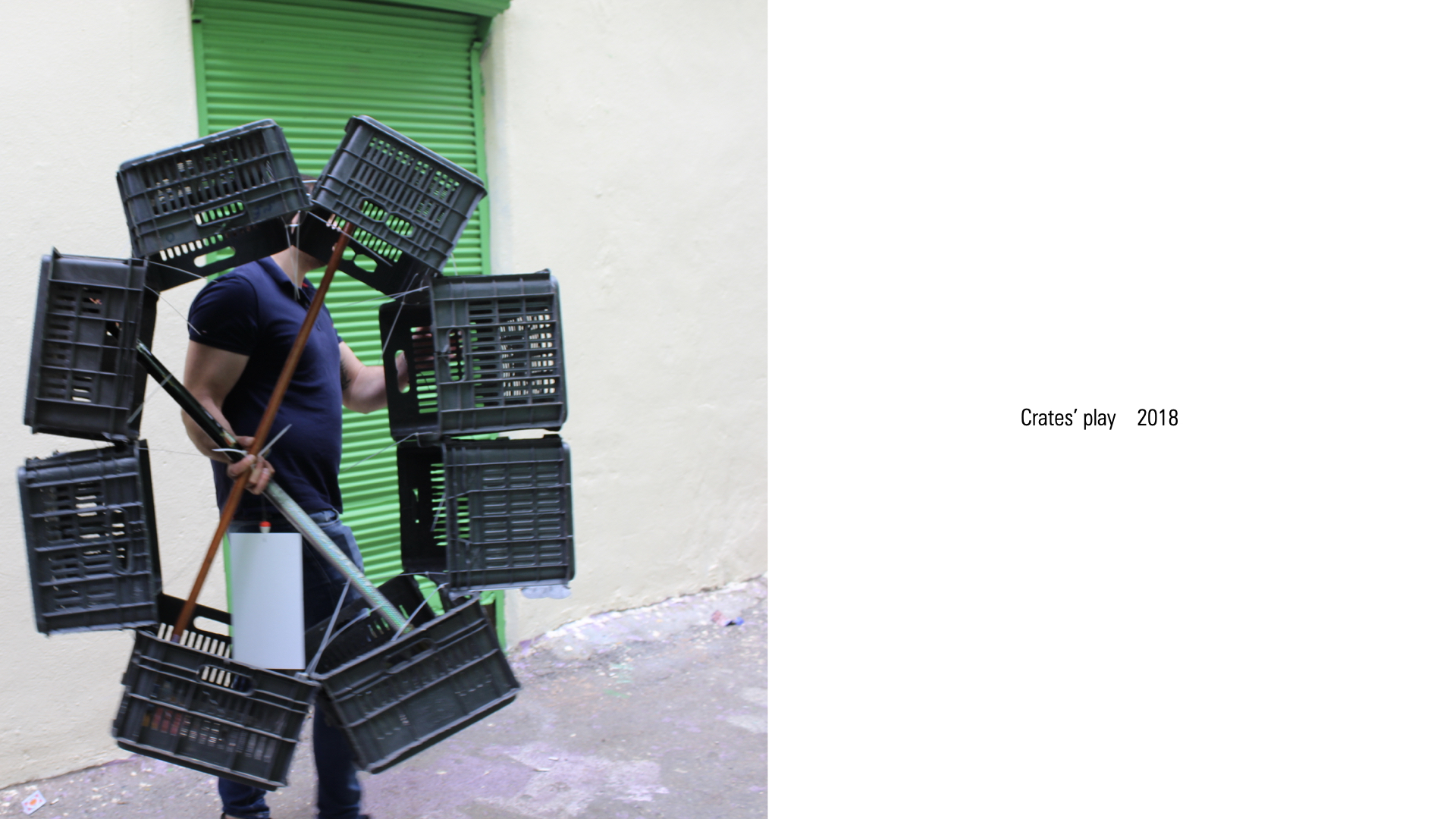
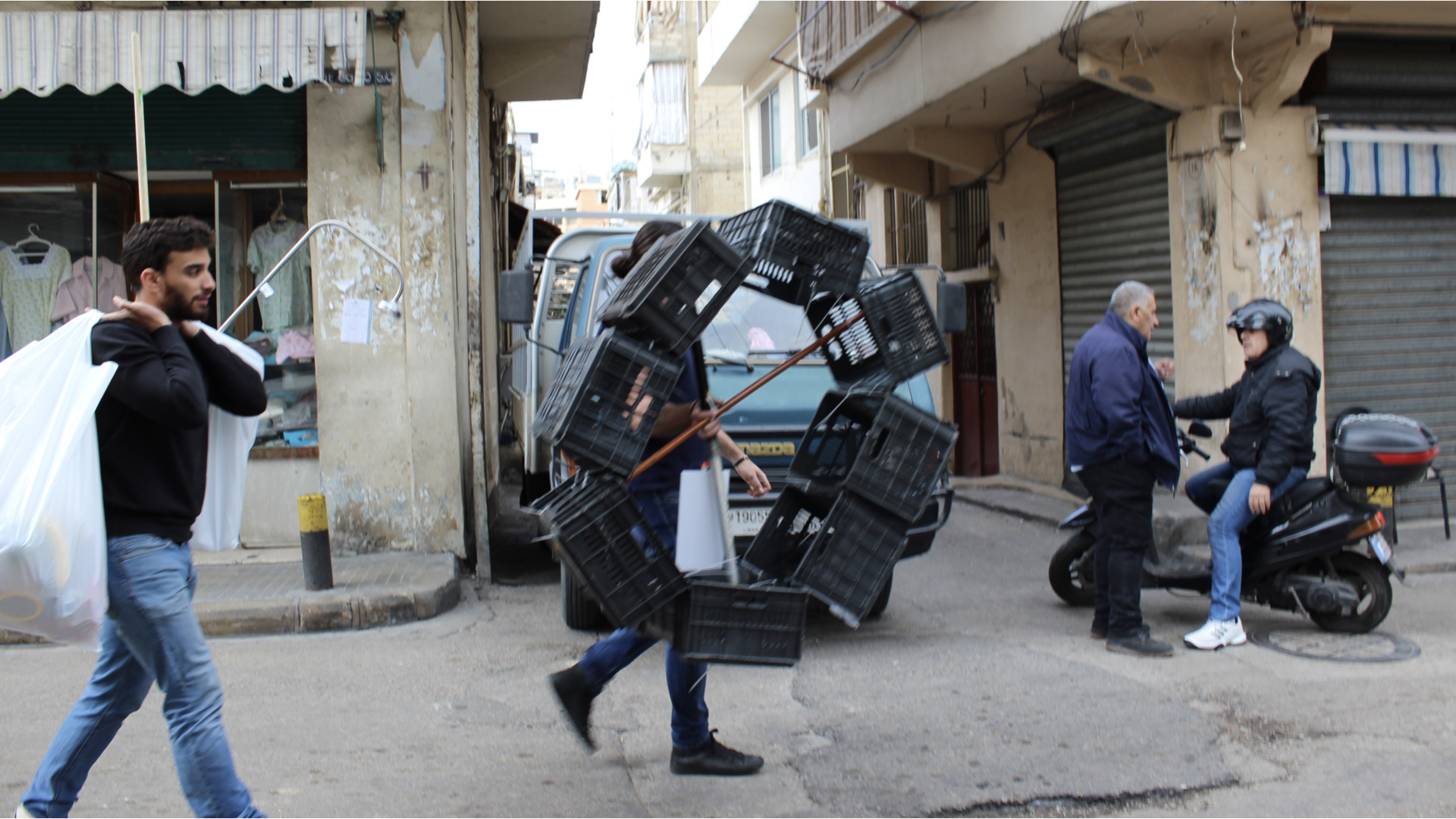
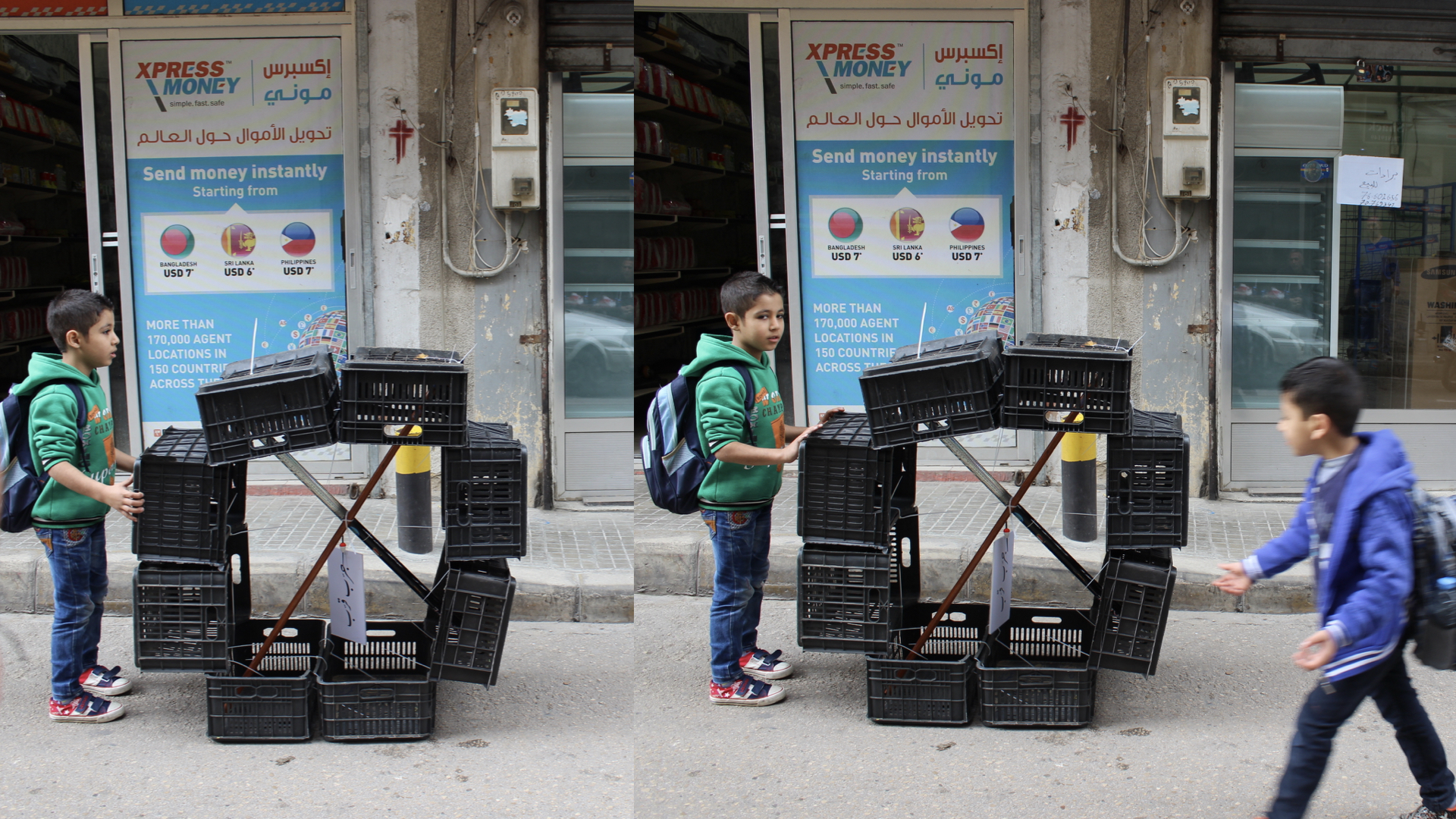

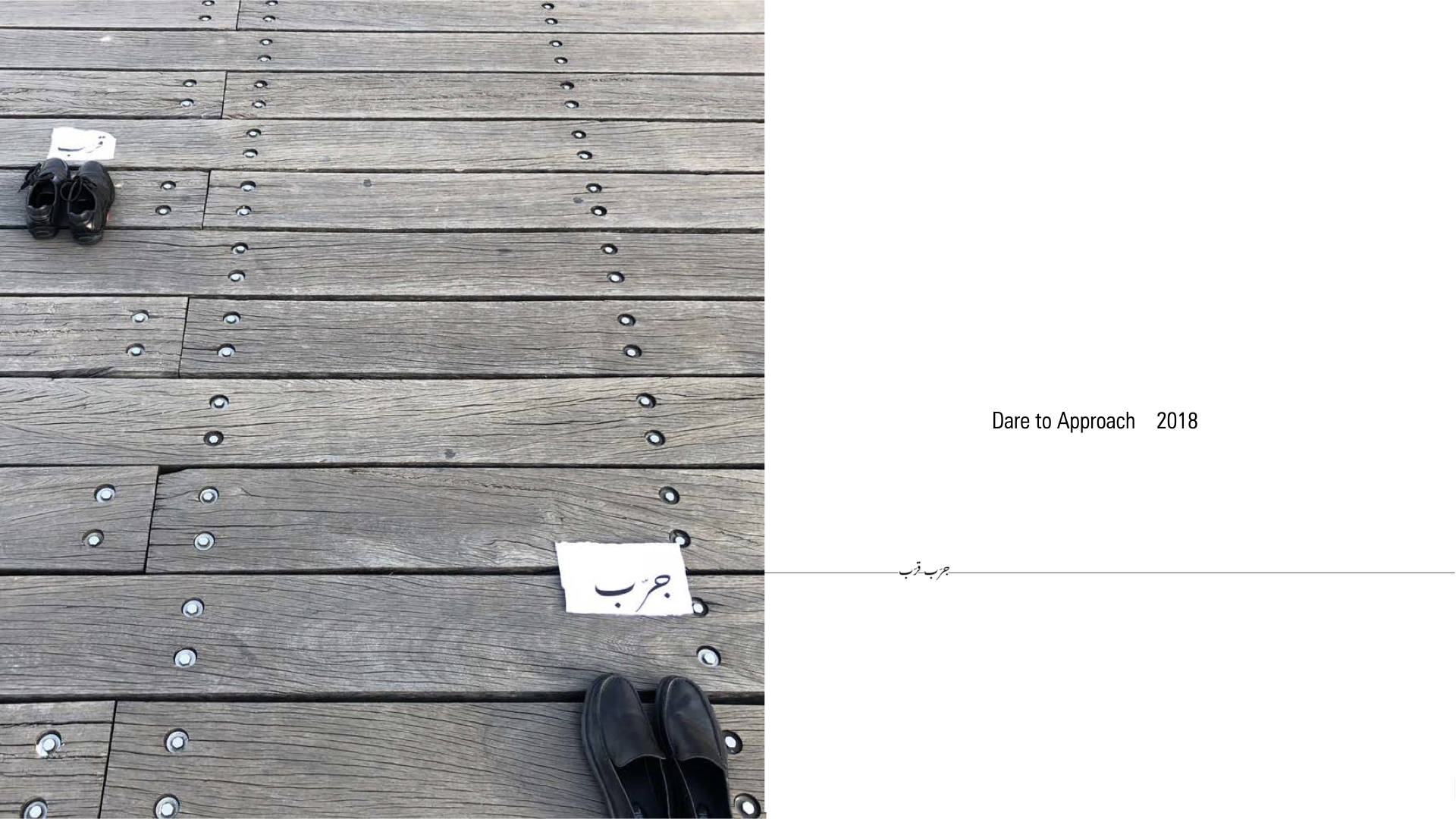
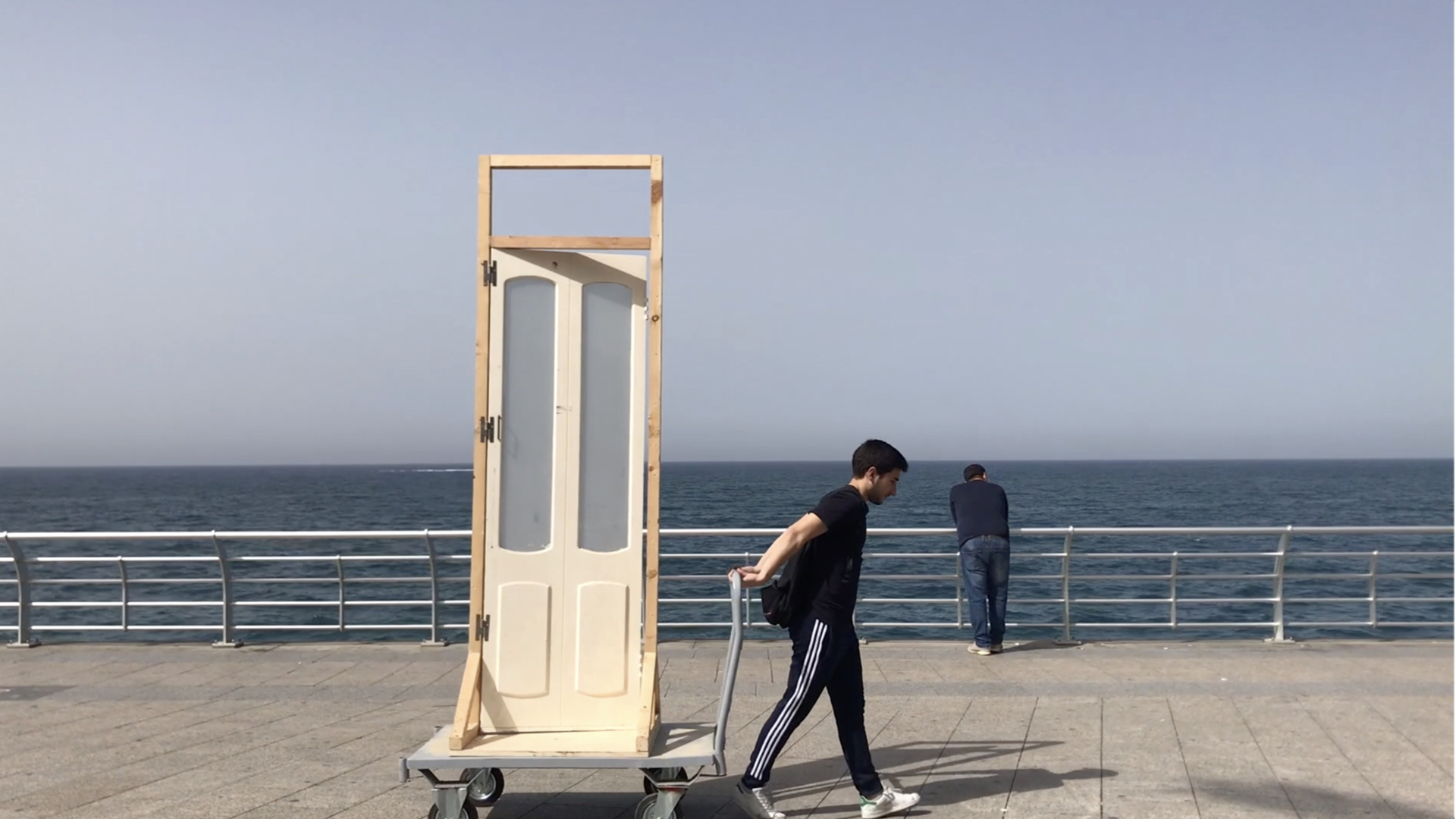
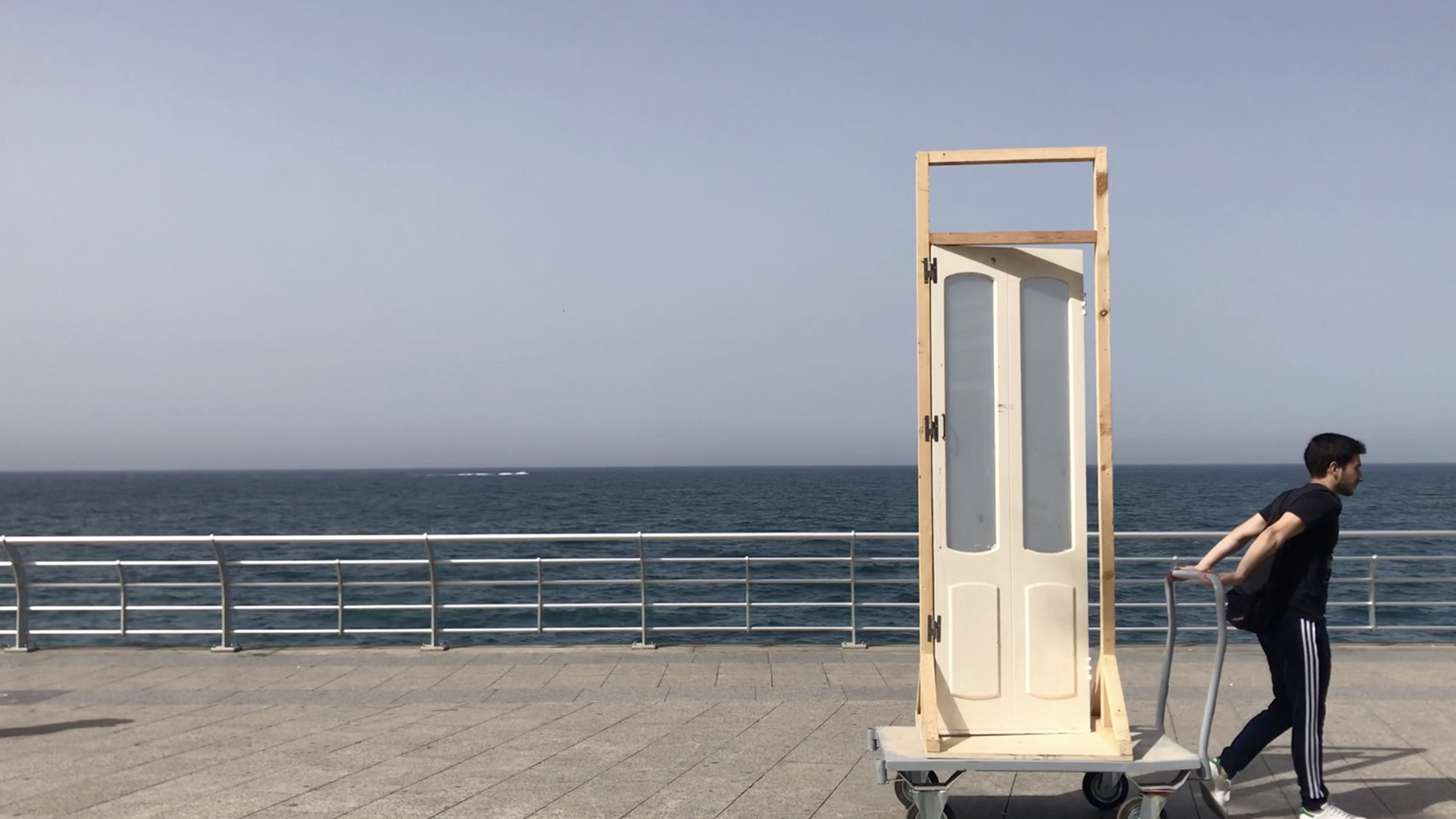
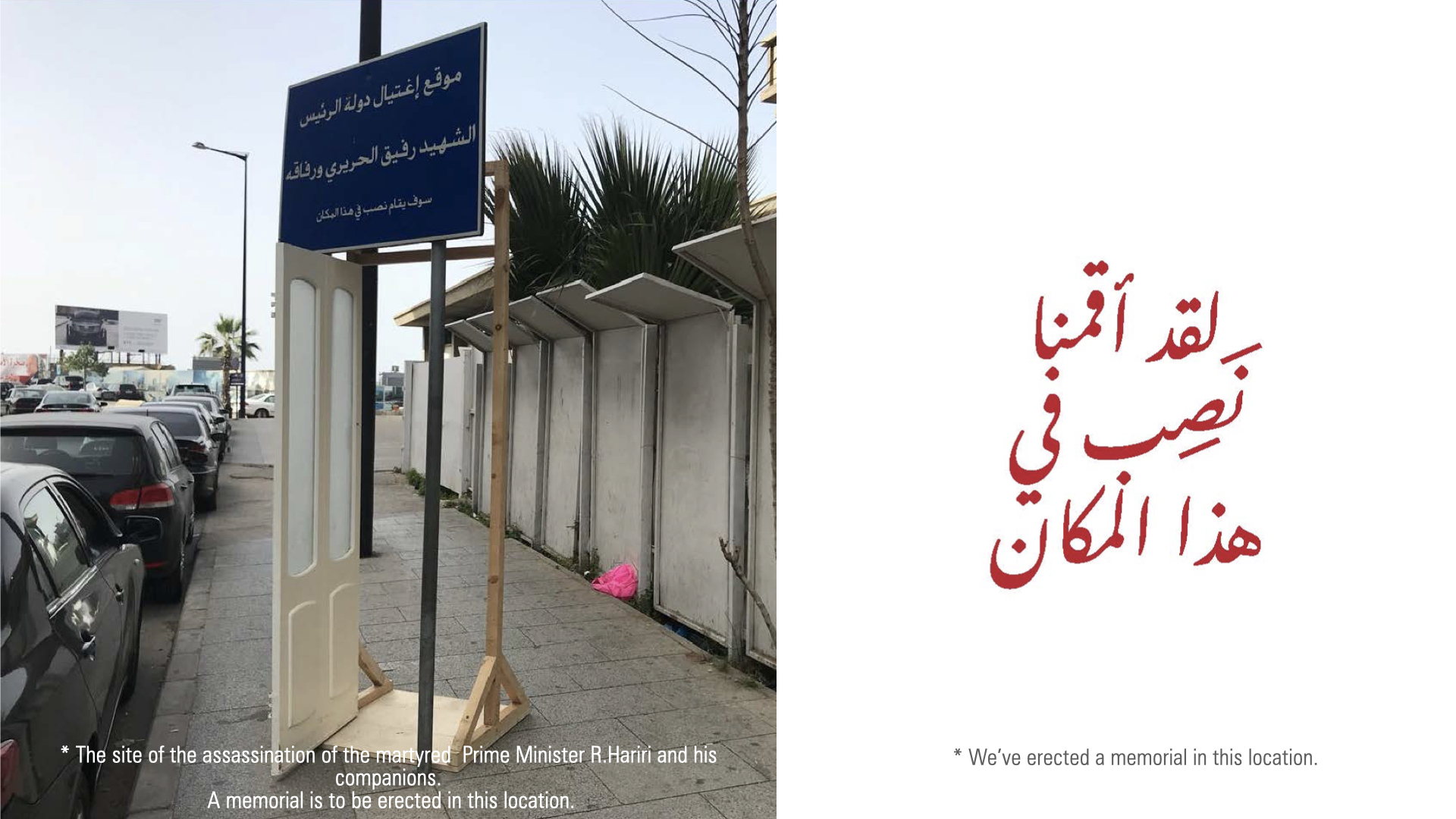
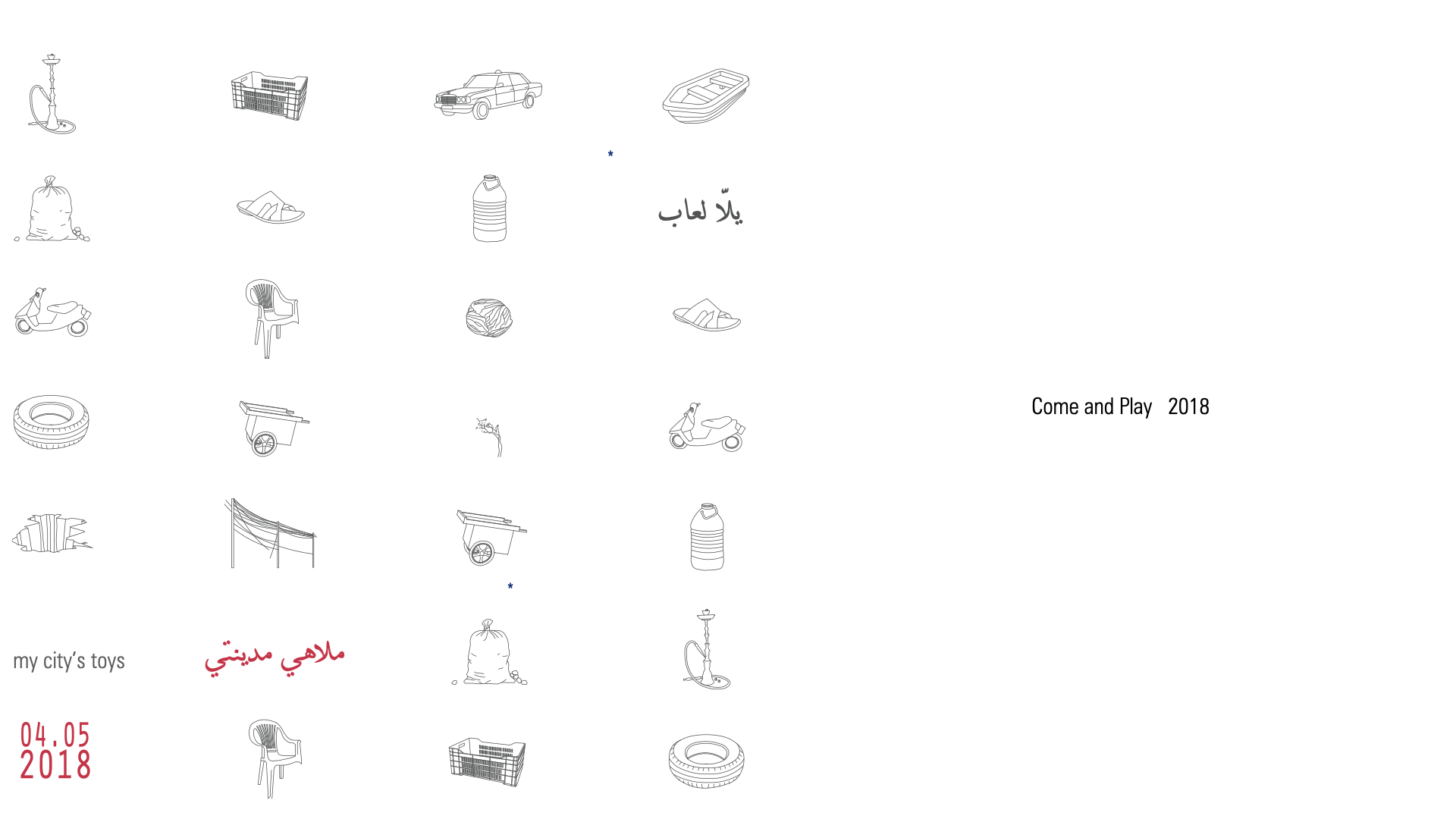
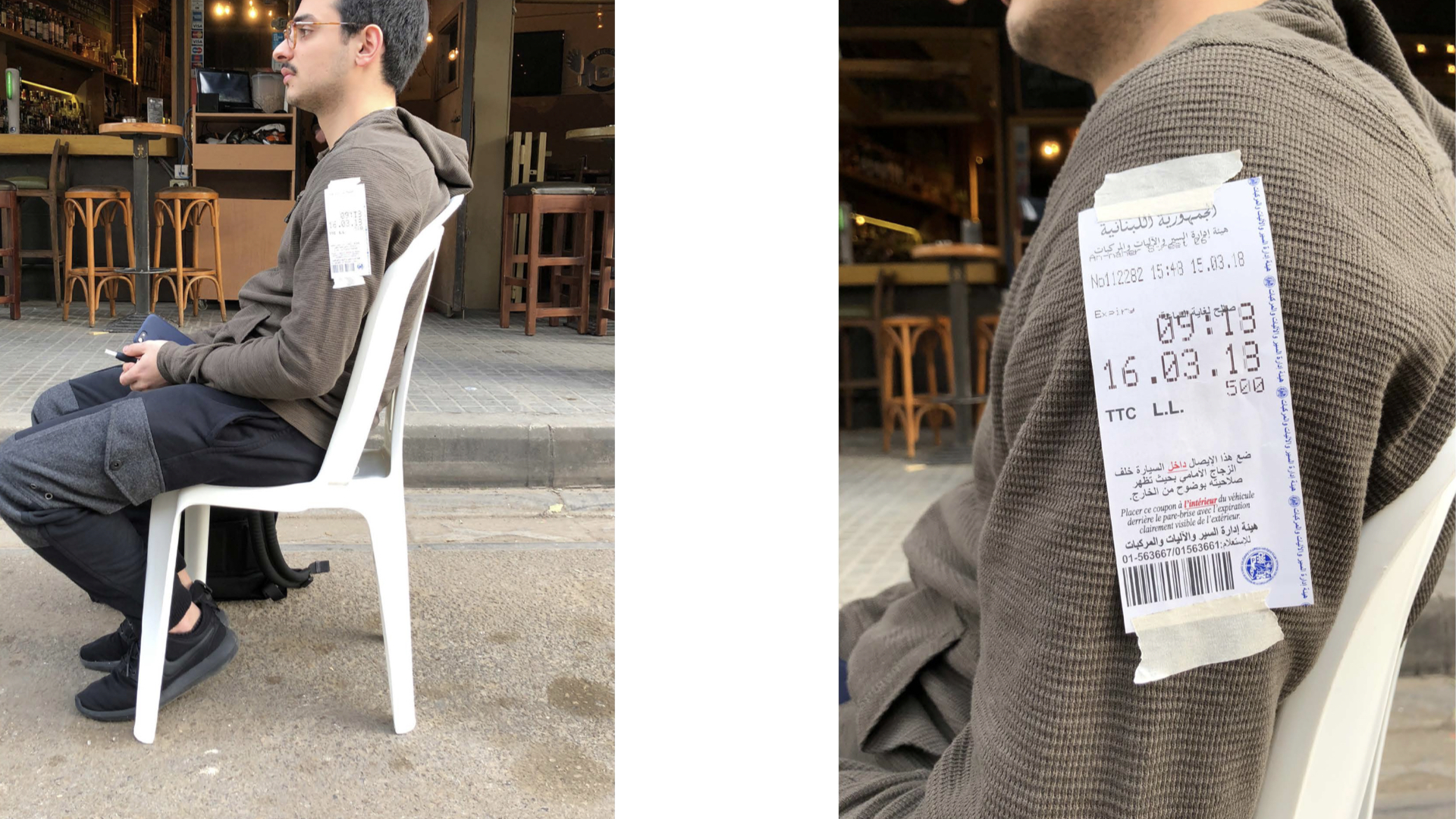
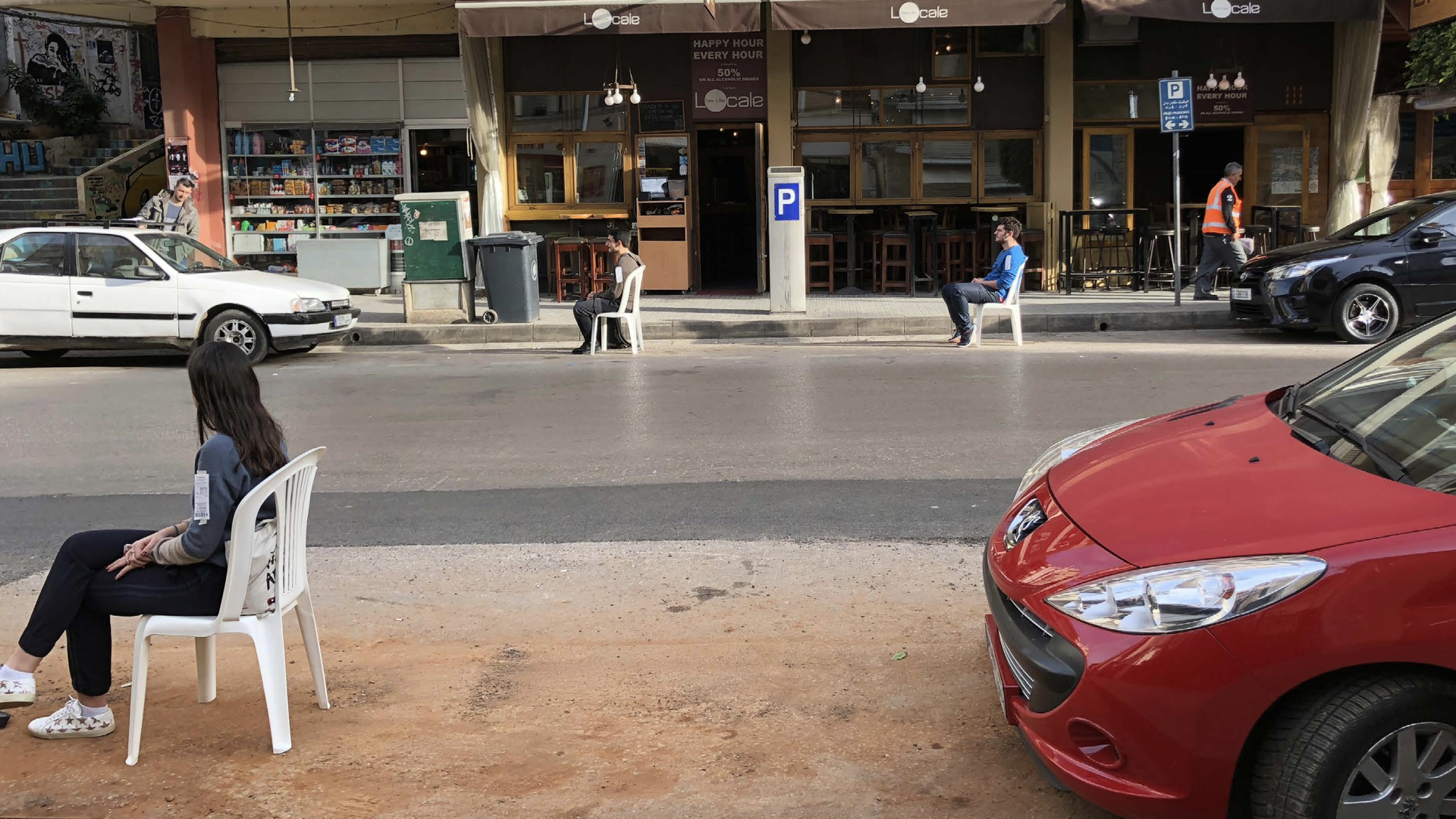
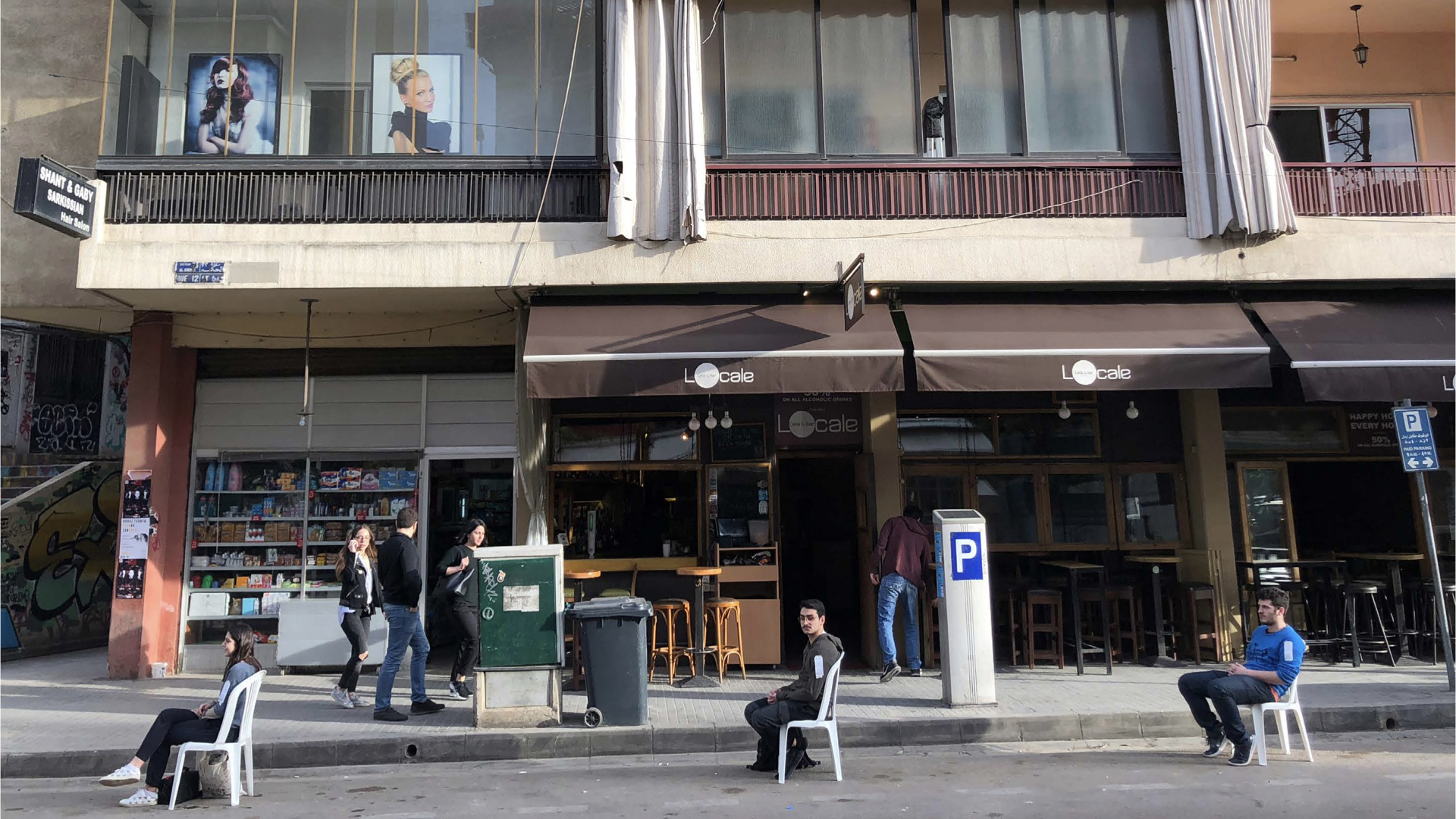
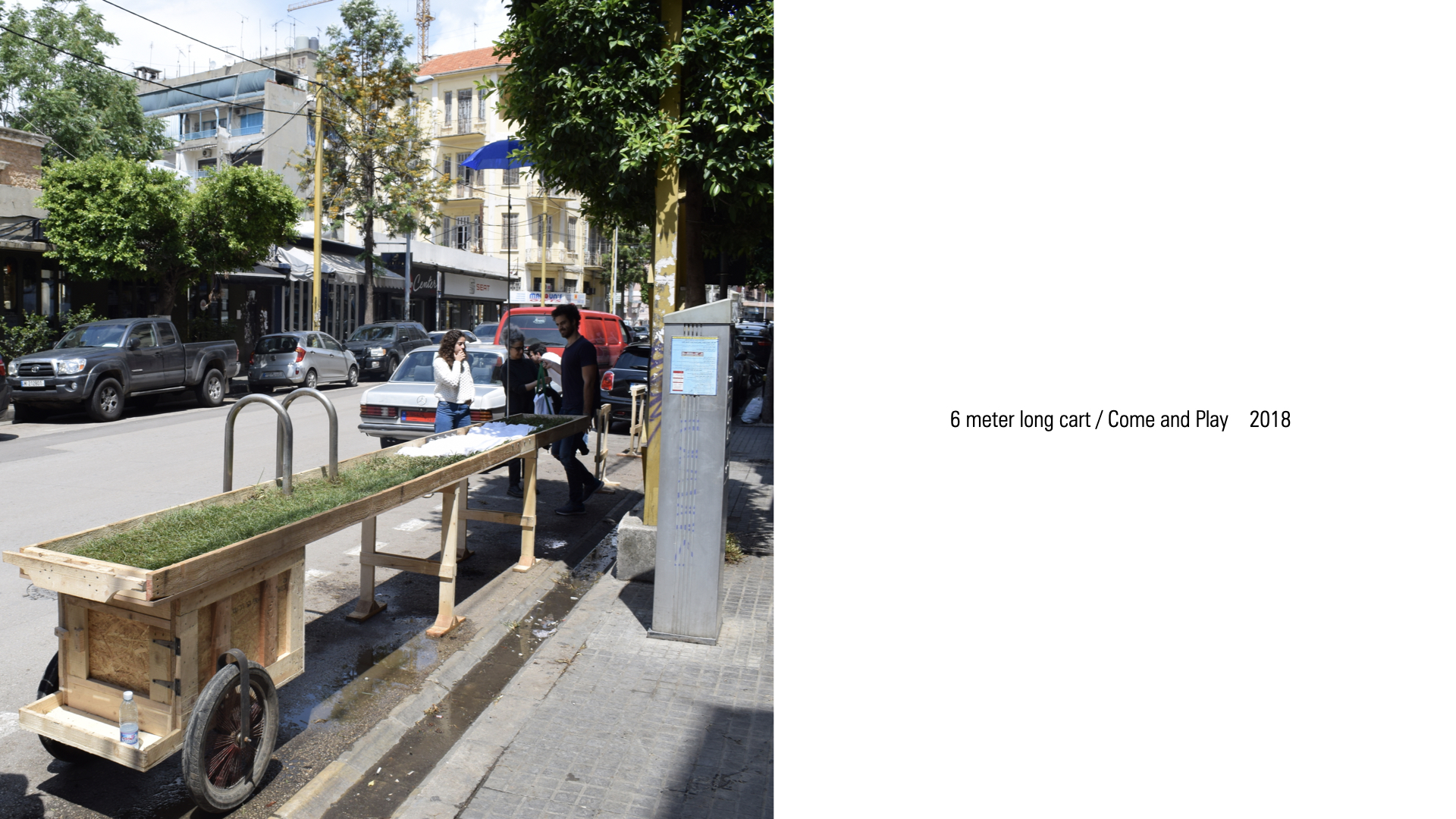
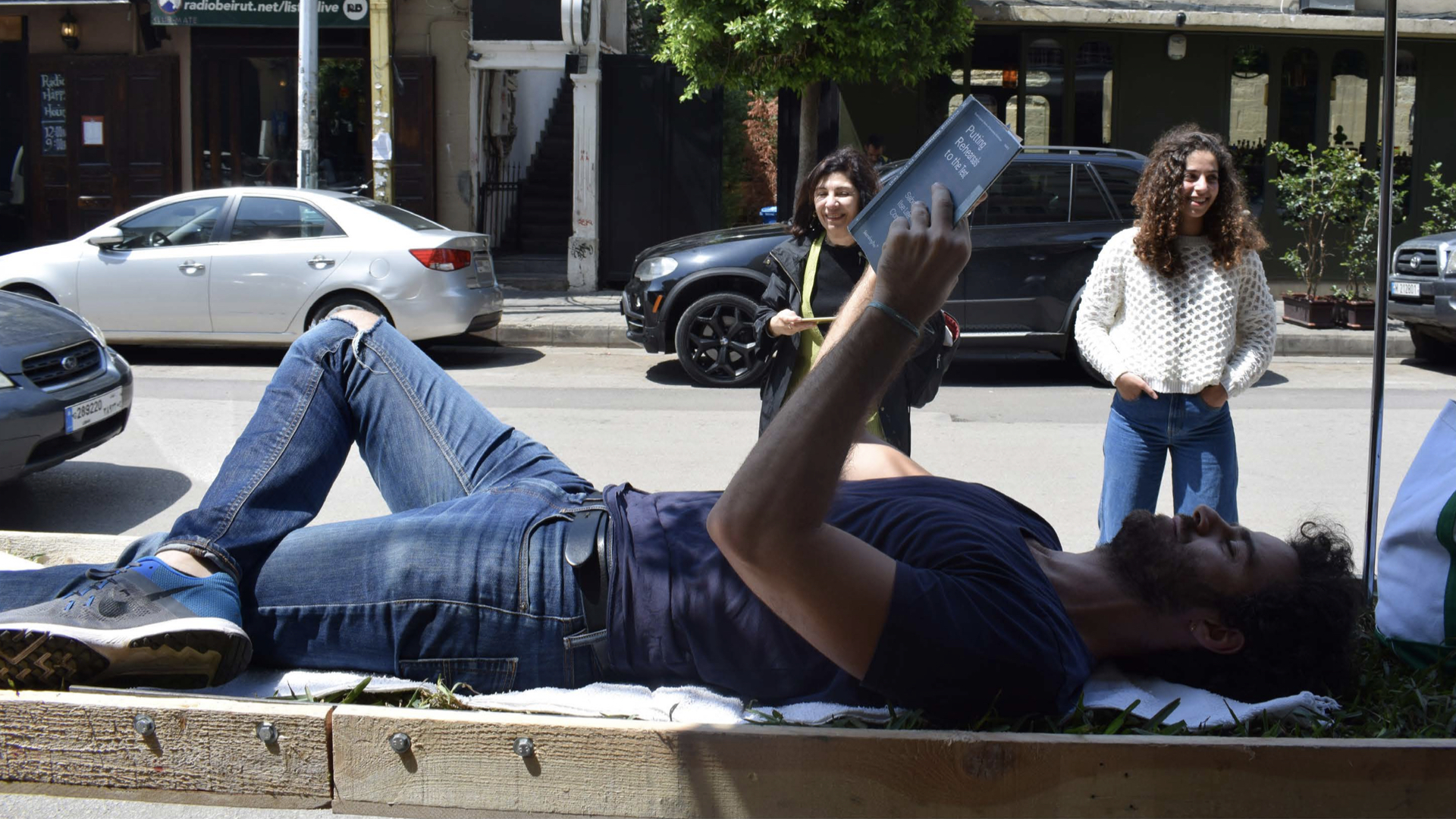
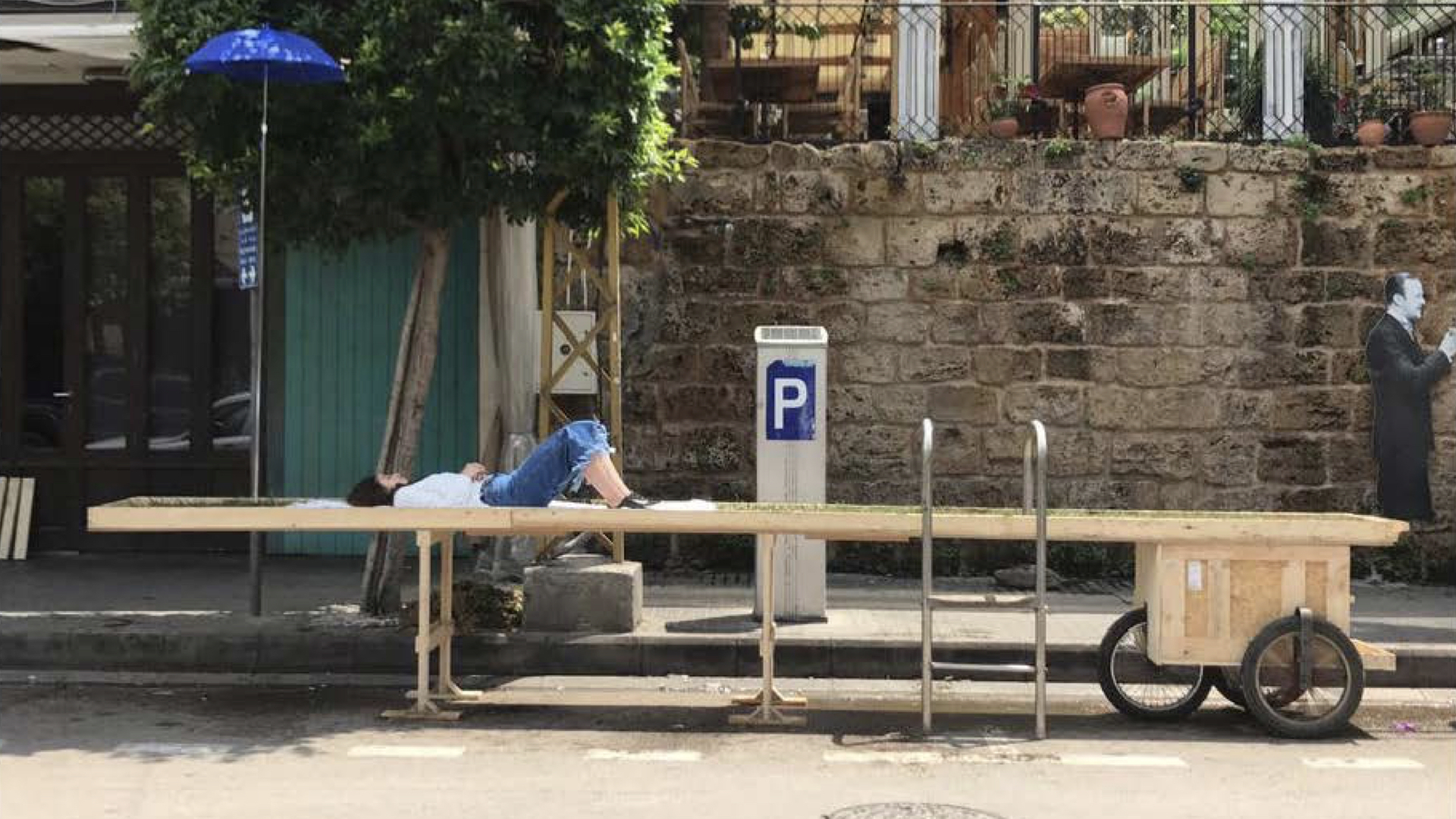

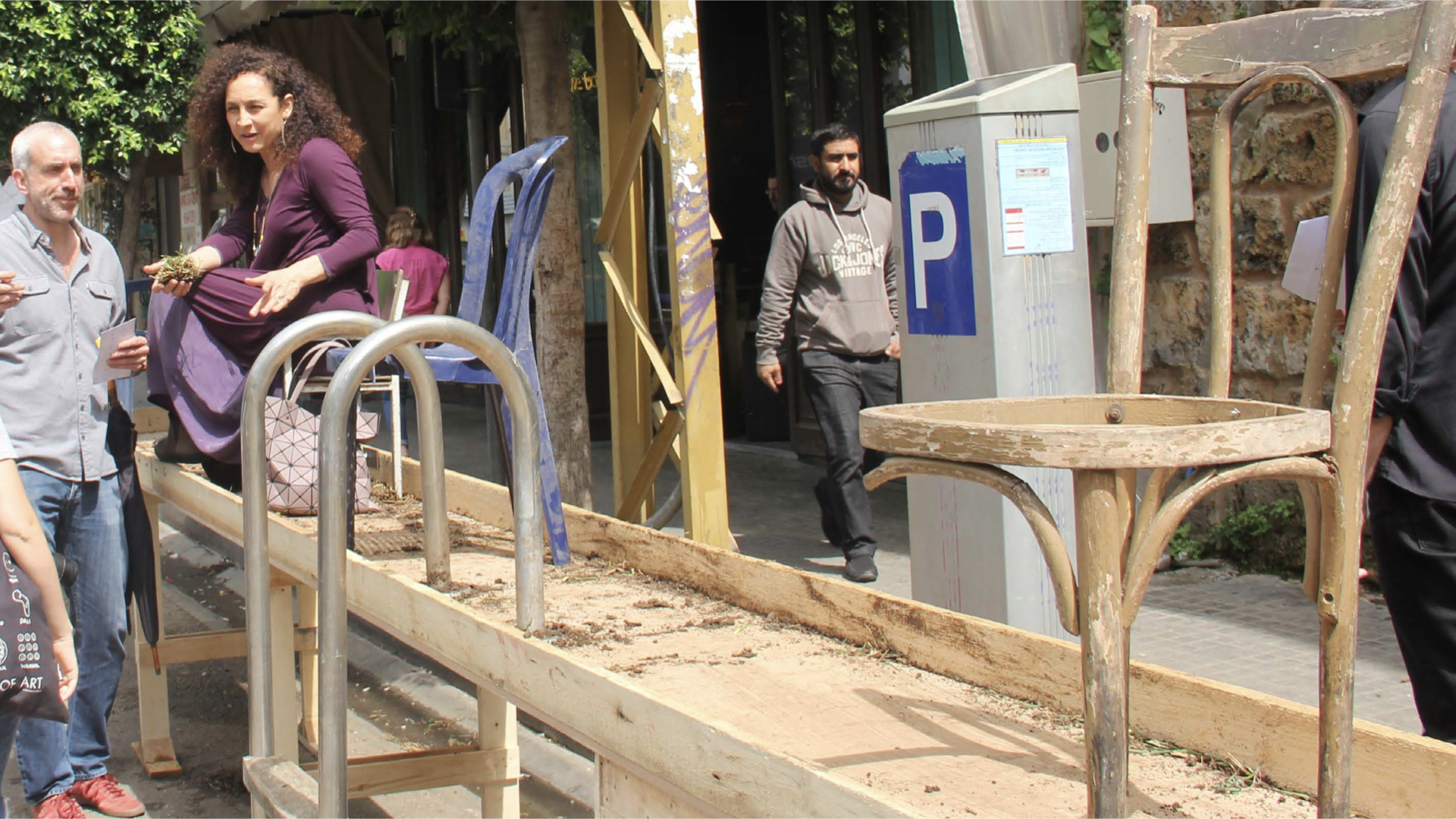
Installations in order of appearance:
Piiiisssst
There is an intimate relation between a piece of luggage and its owner. When carried, the luggage intermittently caresses the body of its holder. The heavier the luggage, the closer the relation. It is an act that carries with it an unsolicited pleasure – a body forced into a sensation of painful joy.
Here, the power play shifts. The luggage now contains within it the body that once held it. This body is limited to push backward, blindly moving against the flow of the passers-by who must now themselves, in an alienated experience, respond to the demands of an object they once presumed they could control.
“Piiiiissssst” is a 55 minutes’ performance/installation. The performance took place at the Milwaukee Art Museum during the opening ceremony. The installation consisted of - 32.4 linear meters by 0.335-meter width - folded posters, revealing body parts coming out from a suitcase, suitcase part or simply limbs that meet each other in a non-orthodox manner. It is a reflection on the actual gesture of being carried in a suitcase as a necessity that one should have while moving from a place to another, unexpectedly. Knowing that one might not get a chance to cross borders, the suitcase becomes a camouflage of bare necessity.
Piiiiissssst is a story of the adaptivity of survival, as we are only left with our bodies; our own archives. This performance takes on the archive and reassesses it from a different angle; an angle which highlights the violence of death, the one of the archives.
Installation /performance by Rana Haddad, Pascal Hachem.
Extract from Portmanteau collective exhibition, Modern Art Milwaukee Museum MAM, USA, October, 2018.
In Between
The plaza is visually quiet. Yet the urban soundscape dominates. The tree is a buffer. Yet the urban doesn’t allow it to fulfill its potential. It trims and deprives of the silence a tree can offer. Only the leftover-spaces, the in- betweens, endure. The in-between of the trees is inviting. The ramp that cuts the plaza slowly leads the user to pause and reflect on the new nest space surrounded with leaves and whispering wind instances if one is lucky. It takes you into the buffer zone, where you lie down, displaced from your surroundings, between silence and sound. You are left in- between.
Studio: BePublic/Silence 2016.
Co-taught by Rana Haddad and Joanne Hayek, AUB.
Students names: Mira Al Jawahiry, Luzan Al Munayer, Mia Baraka, Ibrahim Kombarji, Shada Mustafa.
Corniche Extended
Corniche extended explores the idea that while the coastal path is technically publicly owned, as it was funded by government money, much of it is restricted to the public. The group’s intention focused on inviting the public into this space through an intervention that would render it as fragment of the public coast. Our challenge was that the public could not lay a foot on the pier. The public could go on the pier to only learn that for a sectarian reason, the pier is restricted to the public.
Studio: BePublic/ Public Beirut, 2012.
Co-taught by Rana Haddad, Carole Levesque, Sandra Richani, AUB
Students names: Jalal Makarem , Farah Harake, Marianne Safi, Mustafa Chehab, Rami Saab.
Take a Breather / crates play
This project intervenes in an area that is already rich with its own unique and informal appropriations and culture. The streets of karm el zeitoun were chosen as a site due to their cultural significance and their unfamiliarity to outsiders.
The aim of the project was to create an interface with the user by bringing out elements of everyday life that would have been otherwise disregarded. The project focuses on the notions of the public and the private, the leftover spaces and the spontaneity of everyday life, highlighting the very thin limit between private and public, indoor and outdoor.
Studio: BePublic/Appropriation 2018.
Co-taught by Rana Haddad and Pascal Hachem, AUB.
Students names: Mohamad Chami,Tala Salman, Taha Barazy, Andrea Chaanine.
This project intervenes in an area that is already rich with its own unique and informal appropriations and culture. The streets of karm el zeitoun were chosen as a site due to their cultural significance and their unfamiliarity to outsiders.
The aim of the project was to create an interface with the user by bringing out elements of everyday life that would have been otherwise disregarded. The project focuses on the notions of the public and the private, the leftover spaces and the spontaneity of everyday life, highlighting the very thin limit between private and public, indoor and outdoor.
Studio: BePublic/Appropriation 2018.
Co-taught by Rana Haddad and Pascal Hachem, AUB.
Students names: Mohamad Chami,Tala Salman, Taha Barazy, Andrea Chaanine.
Dare to Approach / the moving monument
Part of set of site works before the final installation. This monument reflects the false sense of involvement in our country, and so the installation is an ironic intervention that critiques the already existing signage erected on site since 2005.
Studio: BePublic/Appropriation 2018
Co-taught by Rana Haddad and Pascal Hachem. AUB.
Students names: Amina Kassem, Sari El Kantari, Elie Geha,Tamara Salloum
Come and Play / let’s park
Valet parking companies have rigorously taken over public parking spaces in Beirut. They have privatized the majority of street parking spaces, and have, therefore, forced their prominence in our city. The public street parking space is now legally possessed by the valet. The students perform the same process of “reservation” in the street parking spaces of Mar Mikhael. They will claim our street parking rights by legally (park meter) reserving as many parking spots as possible using the plastic chair and sitting on it.
Why the plastic chair? It is a typical and dominant tool of the city. Its presence in such a position will suggest an enduring stand that should be part of the performance.
Studio: BePublic/Appropriation 2018
Co-taught by Rana Haddad and Pascal Hachem,AUB.
Students names: Nicolas Abou Haidar, Soraya Hammoud, Nicol Yamin, Lina Akkaoui, Carl Yammine.
Come and Play / 6 meter long cart
A performance where an extended vegetable cart becomes the only accessible green space in Mar Mikhail. To add onto the absurdity of the situation, we made it an accessible space for tanning where an individual must pay the park meter fee to access this green space.
The same cart, late afternoon, ripped from the grass, becomes a display to a set of chairs which have been collected from Mar Mikhail. The diversity of the chairs suggests its strong presence and prominence in the city and thus its role as part of the survival kit.
The exhibit of the chairs at night closes the loop, as it showcases the game of the valets parking taking over public space, on a cart that is re-appropriating that space.
Studio: BePublic/Appropriation 2018,
Co-taught by Rana Haddad and Pascal Hachem, AUB.
Students names: Nicolas Abou Haidar, Soraya Hammoud, Nicol Yamin, Lina Akkaoui, Carl Yammine.